45 Sustainable Clothing Brands: The Ethical Masterlist
In the world of fashion, there is no more serious faux-pas than the trend of fast fashion.
To be blunt, it’s unsustainable and unethical.
And let’s be honest: do mass-produced clothes even look that good?
That’s why we’re exploring brands that are out to change the status quo.
We want to not only avoid fast fashion but eliminate it altogether by supporting ethical and sustainable clothing brands that are creating a fairer and healthier world.
We’ve created many slow fashion brand guides over the years, but this is the big one. It’s basically an encyclopedia of all things ethical and wearable!
This has involved a lot of trying on, reading tags, and scouring impact reports. We’ve done all the dressy digging and style sniffing for you (a process you can learn about at the bottom, or watch our video on the topic above).
Ready to feel inspired, invigorated, and like you can dress to save the Earth?
In the case, here are the best sustainable clothing brands.
*This post contains affiliate links
QUICK LINKS FOR THE BEST SUSTAINABLE CLOTHING BRANDS
1. BOODY
Materials: FSC, OEKE-Tex, and Ecocert-certified organic bamboo.
Transparency & labor practices: The organic bamboo is produced using a sustainable closed-loop process that uses non-toxic solvents and recycles all water usage. Workers are paid fair wages and no fabric is wasted.
Why we love them: One of the best sustainable clothing brands Australia offers. Most of the bamboo fabric we see today isn’t that sustainable, but thanks to their unique process, Boody’s is!
Product range: Affordable clothing, minimalist and sustainable men’s clothing, sustainable yoga clothes, organic bras and underwear, bamboo socks, activewear, ethical leggings, and bodysuits.
Available: Boody
2. TENTREE
Materials: High percentages of organic cotton, hemp, TENCEL, and REPREVE® made from recycled eco friendly materials like polyester.
Transparency & labor practices: Have a transparent website with a full Factory Ledger and relevant industry certifications. Suppliers and factories are held to an ethical Code of Conduct.
Why we love them: This certified B-Corp plants TEN TREES for every product sold in areas of damaged biodiversity.
Product range: Best Canadian sustainable fashion brand for sweaters, tops, hoodies, tees, hats, and accessories (such as eco friendly gloves and sustainable wallets) for women, men and kids.
Available: tentree
3. OUTERKNOWN
Materials: Mostly natural fibers and certified responsibly sourced animal-based materials like ethical wool and down. Synthetic fabrics are almost always made from recycled materials, including Econyl (recycled fishing nets) and recycled polyester.
Supply chain & labor practices: Excellent transparency with details published about their Fair Trade factories in Peru, Mexico, and China.
Why we love them: They create durable, outdoor-ready designs that are bluesign®-certified free of toxic chemicals.
Product range: Outdoor-inspired sustainable mens clothing and womenswear including sweaters, jeans, tops, swimwear, and outerwear (such as ethical winter coats).
Available: Outerknown
4. ORGANIC BASICS
Materials: Tencel clothing with 100% GOTS certified cotton, recycled nylon, and small amounts of elastane.
Transparency & labor practices: BSCI-compliant and members of Sedex, Organic Basics also personally visit their factories.
Why we love them: This 1% for the Planet member provides grants to grassroots activists and carbon offset shipping.
Product range: Ethical underwear, activewear, and super soft eco friendly t-shirts.
Available: Organic Basics
5. THE GOOD TEE
Materials: 100% Fair Trade and GOTS certified organic cotton colored with low-impact dyes.
Transparency & labor practices: Their website’s supply chain map provides a comprehensive view of the process behind their tees, from fair trade sourcing in India to ethical manufacturing.
Why we love them: Not only a Certified B-Corp, but they also offer unisex, inclusive sizes and utilize entirely biodegradable tagging and packing materials.
Product range: As the name suggests, eco t-shirts, as well as other sustainable basics tops.
Available: The Good Tee
6. SUBSET
Materials: GOTS-certified cotton, dyed with OEKO-TEX approved dyes.
Supply chain & labor practices: Keep their transparent supply chain localized to India by sourcing all organic cotton in Ahmedabad and spinning and making the products in an organic fair trade factory in Tamil Nadu.
Why we love them: Subset’s program to accept old intimates (from any brand) and recycle them into new eco friendly materials. Participation earns a free pair of undies!
Product range: Organic underwear.
Available: Subset
7. TOAD&CO
Materials: Organic cotton, Lenzing modal and lyocell, RWS-certified wool, hemp, and recycled materials.
Transparency & labor practices: OEKO-TEX and bluesign®-approved chemical usage in addition to a carbon-neutral headquarters. By partnering with The Renewal Workshop they recycle all fabric scraps.
Why we love them: Their ethical factory based in California employs adults with disabilities and they were named one of the top places to work by Outside Magazine.
Product range: Affordable and sustainable outdoor clothing for men and women including organic cotton t shirts.
Available: Toad&Co
8. ALLBIRDS
Materials: ZQ Merino wool for all wool shoes and FSC-certified eucalyptus-derived TENCEL Lyocell for the “tree” shoes. Other raw materials listed here.
Transparency & labor practices: Provide full supply chain and responsible sourcing transparency and all final assembly occurs in WRAP-certified factories.
Why we love them: They are one of the leading ethical shoe brands with both Carbon Neutral and B-Corp certifications.
Product range: Best eco-friendly footwear brand for ethical sneakers, eco-friendly slippers, sustainable running shoes and casual slip-ons.
Available: Allbirds
9. WVN
Materials: Mostly GOTS-certified cotton along with some Modal, wool, and spandex. All fabrics are dyed with low-impact dyes.
Transparency & labor practices: Produced in Fair Trade factories in India that utilize and preserve traditional artisan techniques.
Why we love them: A certified B Corporation born from one of the first sustainable fashion brands (Synergy Organic Clothing), this organic clothing crafts everything completely by hand. They also promote slow fashion by designing a small batch production of timeless styles.
Product range: Affordable ethical clothing brand for women’s tops, skirts, fair trade dresses, sweaters, and activewear.
Available: WVN
10. PACT
Materials: Mostly 100% organic cotton but some designs have added spandex.
Transparency & labor practices: Sustainable manufacturing in Fair Trade factories in India near the fabric sources and farms to reduce waste and greenhouse gas emissions.
Why we love them: An affordable fast fashion alternative, Pact saves you money and planet resources via their water usage and energy-saving production methods. They encourage circular fashion through their clothing recycling and donation program.
Product range: Inexpensive eco friendly brand for underwear and basics, activewear, ethical pajamas & shirts.
Available: Pact
11. COYUCHI
Materials: GOTS and MADE SAFE-certified cotton, GRS-certified recycled cotton, Climate Beneficial wool, and organic linen.
Transparency & labor practices: Partner with India’s Chetna Coalition for sustainable organic farming. Coyuchi uses certified ethical manufacturing partners with makers supported through a worker-managed Community Development Fund.
Why we love them: Pioneering regenerative agriculture, Coyuchi donates to the White Buffalo Land Trust and Fibershed. Their circularity-minded 2nd Home Take Back program recycles old Coyuchi linens.
Product range: Eco friendly robes, organic baby blankets, fair trade blankets for adults, sustainable shower curtains, eco friendly towels, organic mattress protectors, affordable linen sheets, and other eco friendly bedding.
Available: Coyuchi
12. ABLE
Materials: Microsuede, cotton, TPR (rubber + plastic), and ethically sourced leather (a by-product of the meat industry and clean water using sustainable practices during tanning).
Transparency & labor practices: Their website has transparent details regarding workers living wage, rights, child labor, forced labor, and benefits.
Why we love them: ABLE was the first fashion brand to publicly share their lowest-paid wages! Big stuff considering only 2% of fashion workers receive livable wages.
Product range: Women’s ethical boots, sandals, sneakers, flats, heels, and eco friendly handbags and purses.
Available: ABLE
13. CHRISTY DAWN
Materials: Regenerative cotton, deadstock fabrics, and vegetable dyes.
Transparency & labor practices: Pay fair wages 3x average garment worker in their USA factory.
Why we love them: Their farm-to-closet program is transforming 24 acres of depleted Indian land into a regenerative cotton farm. And they’re also one of the few zero waste fashion brands offering a Deadstock Collection made from revitalized fabrics.
Product range: Women’s dresses, tops, bottoms, loungewear, and shoes. All clothing is available in both petite and extended sizing and they sell organic maternity clothes.
Available: Christy Dawn
14. Nisolo
Materials: Leather that’s a by-product of the meat industry and certified by the Leather Working Group.
Transparency & labor practices: Manufacture in a brand-owned factory, where they provide workers with yoga classes and in-house educational programs on financial literacy, nutrition, and physical education. They are committed to providing living wages for 100% of workers.
Why we love them: This top-rated Certified B Corporation and Climate Neutral company helped change the fashion industry by co-founding the Lowest Wage Challenge.
Product range: Ethical sandals, boots, flats, mules, clogs, sneakers, ethical heels, running shoes, oxfords, loafers, socks, leather bags, and belts.
Available: Nisolo
15. VITAMIN A
Materials: OEKO-TEX-certified EcoLux™ (the world’s first premium recycled nylon fabric), blended with Xtra Life Lycra® for long-lasting durability when exposed to chlorine.
Transparency & labor practices: Vitamin A supports female artisans with fair wage jobs and safe working conditions. Their local transparent supply chain is mostly in California.
Why we love them: Have inclusive swimwear for sizes up to XXL and ship in recyclable/compostable packaging.
Product range: Ethical swimwear.
Available: Vitamin A
16. SUMMERSALT
Materials: Recycled polyamide (salvaged from ocean plastic and post-consumer materials) blended with Lycra. This fabric is tested to hold up in 100+ hours of chlorinated water.
Transparency & labor practices: Their partner Asian factories are certified by WRAP, GOTS, GRS, and/or BSCI.
Why we love them: Ethical swimwear for under $95… need we say more?
Product range: Affordable and inclusive swimwear, activewear, travel wear, and sleepwear.
Available: Summersalt
17. PATAGONIA
Materials: Range of innovative sustainable materials including organic, natural and organic fabrics (namely cotton, hemp, linen, and wool) and recycled materials.
Transparency & labor practices: Fair trade certified, Patagonia has a strong focus on transparency via The Footprint Chronicles, which tells where all garments are made.
Why we love them: A leader in ethical practices, Patagonia was the founding member of 1% for the Planet.
Product range: Best eco friendly brand for men’s and women’s adventure gear, casual wear, outerwear, sustainable swimwear, and eco friendly luggage and bags.
Available: Patagonia
18. UNITED BY BLUE
Materials: Organic cotton, hemp, TENCEL, cruelty-free wool, and some virgin synthetics, all colored with vegetable dyes.
Transparency & labor practices: This Certified B-Corp manufactures in seven GOTS, OCS, and/or Fair Trade-certified factories in Turkey, China, Vietnam, and the USA.
Why we love them: UBB donates to environmental charities and organizes ocean cleanups.
Product range: Best ethical outdoor brand for men’s and women’s apparel, loungewear, swimwear, outerwear, and sustainable backpacks.
Available: United By Blue
19. REFORMATION
Materials: TENCEL lyocell, recycled cotton and nylon, recycled ethical cashmere, responsibly sourced yak wool, and vegetable-tanned leather. Working to eliminate things like spandex, viscose, and rayon in favor of more sustainable materials.
Transparency & labor practices: Reformation manufactures over 65% of garments in their own 32 Los Angeles factories. Other global factories are regularly audited.
Why we love them: Not only carbon-neutral themselves by offsetting and maximizing sustainable practices, Reformation incentivizes customers to switch to wind energy.
Product range: Best ethical brand for women’s apparel with a selection of dresses and jumpsuits, sweaters, ethical jeans, and blouses.
Available: Reformation
20. PRANA
Materials: Look out for hemp, TENCEL modal, cruelty-free merino wool, and RDS-certified down.
Transparency & labor practices: Member of the Textile Exchange who lets you filter for fair trade products.
Why we love them: An official bluesign® partner, prAna’s eco friendly garments are largely free of all toxic chemicals. They donate regularly to youth outreach outdoor programs.
Product range: Best ethical outdoor brand for men’s and women’s apparel, activewear, swimwear, dresses, tees, sweaters, and jeans.
Available: prAna
21. KOTN
Materials: 100% handpicked Giza cotton, the finest of all Egyptian cotton.
Transparency & labor practices: By purchasing cotton from family farms “direct trade” at set prices, farmers (and their entire family) aren’t affected by market fluctuations. Kotn third-party audits all farms and factories.
Why we love them: This certified B-Corp donates a portion of each sale to stop the cycle of child labor.
Product range: Best affordable brand for loungewear, pajamas, and other casual tops, and work trousers (especially for men).
Available: Kotn
22. THREADS 4 THOUGHT
Materials: Organic cotton, Lenzing Modal, and a few sparse synthetics for stretch.
Transparency & labor practices: Manufacture in FT and WRAP-certified factories that utilize waste-reducing production techniques.
Why we love them: T4T offers inclusive XS to XXL sizes and donates a percentage of every sale to charity.
Product range: Best for activewear, loungewear, and casual wear for women, men, and kids.
Available: Threads 4 Thought
23. THE CLASSIC T-SHIRT COMPANY
Materials: 100% ringspun and pre-shrunk GOTS-cotton, colored with Azo-free dyes.
Transparency & labor practices: A Made in the USA brand, who are committed to fair work principles and cost transparency.
Why we love them: Timeless, flattering cuts and solid colors mean sustainable designs that never go out of style. For shipping, they use recycled packaging only.
Product range: Best sustainable brand for USA made short and long sleeve T-shirts.
Available: The Classic T-Shirt Company
24. NAU
Materials: Organic/FSC-certified natural fibers and recycled synthetics/animal fibers. Many fabrics are Bluesign Approved.
Transparency & labor practices: Nau openly discloses all sourcing locations and regularly audits long-term partners.
Why we love them: Committed to “make clothing that lasts”, their line is versatile whether your jungle is real or concrete.
Product range: Best sustainable women and men’s brand for outerwear, hoodies, work shirts, casual bottoms, and loungewear.
Available: Nau
25. AMOUR VERT
Materials: Natural or cellulosic fibers like FSC-certified TENCEL Modal and Lyocell, cupro fabrics, hemp, and merino wool. Some virgin spandex.
Transparency & labor practices: 97% of garments are manufactured across six San Francisco factories.
Why we love them: Amour Vert (aka. green love) has planted over 300,000 trees through their Tees = Trees giving campaign.
Product range: A huge selection of women’s apparel including dresses, sweaters, and business casual bottoms, and select menswear.
Available: Amour Vert
26. ARMS OF ANDES
Materials: 100% sustainably sourced alpaca wool.
Transparency & labor practices: The wool is sourced and processed in Peruvian Andes using traditional techniques and generating gainful employment opportunities.
Why we love them: Ethical and eco friendly practices for responsible sourcing of alpaca wool—which is fast-drying, biodegradable, antimicrobial, and has minimal impact on the planet.
Product range: Ethical activewear, hoodies, and outdoor clothing for men and women.
Available: Arms of Andes
27. LA RELAXED
Materials: Non-GMO cotton, linen, hemp, Lyocell, and Modal, occasionally blended with small amounts of spandex.
Transparency & labor practices: LA Relaxed prioritizes local vendors and keeps almost all their supply chain in the US.
Why we love them: Three words: Oprah-approved jumpsuits. They also donate clothing to local homeless youth.
Product range: Best eco-friendly brand for activewear, basics, and pajamas.
Available: LA Relaxed
28. MATE THE LABEL
Materials: GOTS certified cotton, TENCEL, hemp, and linen.
Transparency & labor practices: MATE sources cotton from Maharashtra, India, but the rest of the supply chain is “v localized” in Los Angeles within a 10-mile radius.
Why we love them: This female founded company wants to “spread love, not chemicals” and uses only organic fabrics and eco friendly dyes.
Product range: Best vegan women’s brand for graphic and earth first essentials, “clean essentials”, and other loungewear like organic pajamas.
Available: MATE the Label | Free People
29. SOLE
Materials: Recycled wine corks, Bloom Algae Foam, post-industrial recycled EVA, recycled PU, and chrome-free leather.
Transparency & labor practices: Source all recycled cork fabric through ReCORK (which they founded) and manufacture in China with “partners we consider to have high levels of environmental and social integrity.”
Why we love them: Not only a 1% for the Planet member and founder of Brands for Better give-back network, SOLE also supports carbon offset programs to counter their carbon emissions.
Product range: Best eco-friendly footwear brand for recycled flip flops and vegan sandals.
30. MATA TRADERS
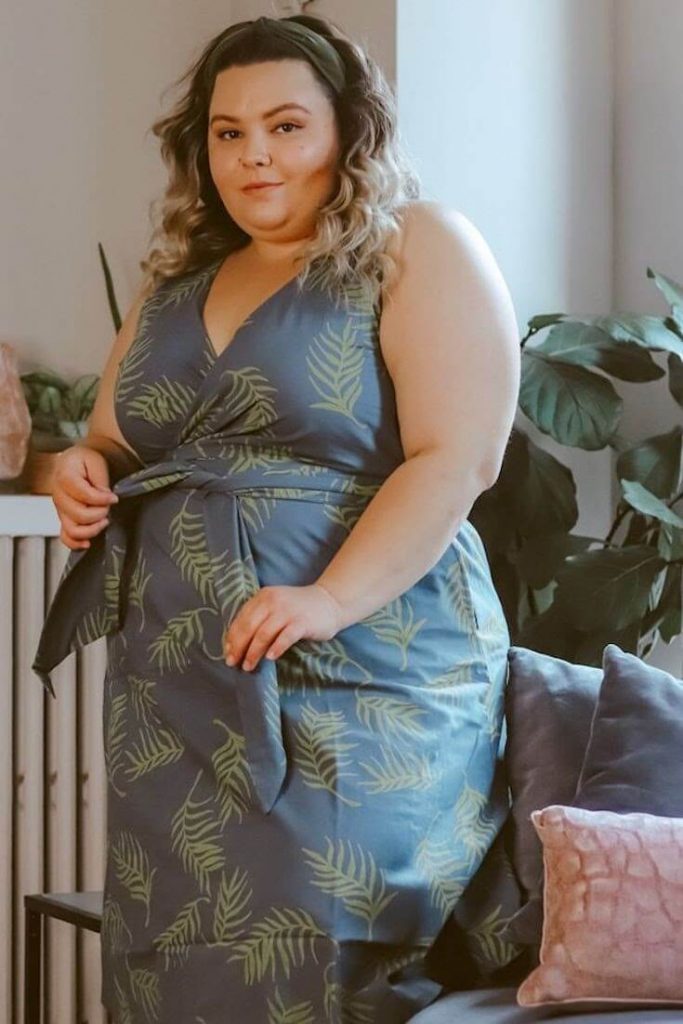
Materials: Either 100% cotton or a blend of cotton and rayon (to be avoided if possible).
Transparency & labor practices: As a long-time member of the Fair Trade Federation, they partner with local artisans in India and Nepal.
Why we love them: Mata Traders is a gold-status Green America Certified Business with top-notch inclusivity for sizes US 0-24. One of the top slow fashion brands we’ve canvassed.
Product range: Best women’s brand for affordable dresses, ethical plus size clothing, and accessories.
Available: Mata Traders
31. AMUR
Materials: GOTS-certified natural (cotton, hemp, linen, and silk), cellulosic (TENCEL Modal and cupro), and Global Recycle Standard certified regenerated fabrics.
Transparency & labor practices: AMUR manufactures in NEST-certified factories in India and Vietnam.
Why we love them: Their take-back clothing recycling program, which is one of many reasons their name is short for “A Mindful Use of Resources”.
Product range: Best sustainable high fashion brand for women’s dresses and skirts, sustainable jumpsuits, and fancy tops.
32. PASSION LILIE
Materials: GOTS-certified fabrics, non-GMO cotton.
Transparency & labor practices: Using World Trade Organization certified family factories in India, they provide workers with fair wages, health care, and loan opportunities.
Why we love them: Passion Lilie holds memberships to the Fair Trade Federation and Ethical Fashion Forum Fellowship 500.
Product range: Capsule wardrobe staples like sweaters, dresses, and tops, and mens button downs.
Available: Passion Lilie
33. INDOSOLE
Materials: Recycled tires combined with low-water vegan leather and plastic-free “ENVRO” fiber.
Transparency & labor practices: Limiting the majority of their supply chain to Indonesia, all entities are audited yearly for social and environmental impact.
Why we love them: This Certified B-Corp gives back by organizing charity events and donating shoes.
Product range: Best eco friendly footwear brand for recycled flip flops.
34. PEOPLE TREE
Materials: Organic cruelty-free merino wool, and TENCEL™ Lyocell. All dyes are GOTS-certified and azo-free.
Transparency & labor practices: 90% of their factories and work-from-home co-op seamstresses bear Fair Trade certifications. You can view proof of social responsibility in a yearly Review.
Why we love them: People Tree was the first ever Fair Trade certified fashion brand.
Product range: Dresses, tunics, sweaters, trousers, and other modern women business casual essentials.
Available: People Tree
35. THOUGHT
Materials: Organic cotton, hemp, wool, recycled synthetics, and organic bamboo.
Transparency & labor practices: Source eco friendly fabrics from and manufacture in China, upholding all entities to their published supplier code of conduct.
Why we love them: Founders of the fashion impact initiative Common Objective.
Product range: Affordable UK based sustainable brand for sweaters, tunics and tees, bottoms, loungewear and bamboo pajamas.
Available: Thought
36. KUYICHI
Materials: GOTS certified cotton or post-Consumer Recycled Denim. Recycled PET, Tencel, hemp, and linen.
Transparency & labor practices: All major suppliers hold ethical certifications based on audits, including BSCI and Fair Wear Foundation.
Why we love them: The first organic denim brand and fans of the circular economy. Wondering what to do with old clothes? Recycle them via Kuyichi’s Blueloop partners.
Product range: Sustainable denim, mens shirts, and cotton T-shirts.
Available: Kuyichi
37. SKFK
Materials: TENCEL Lyocell, wool, silk, GRS/Recycled Content Standard made from recycled synthetics, and small blends of virgin elastane.
Transparency & labor practices: A member of the Chetna Coalition for sustainable cotton sourcing, SKFK has a published Supplier Code of Conduct for all suppliers and factories.
Why we love them: They encourage a circular economy through in-store repair, limited quantities, a garment recycling program, and clothing and dress rental.
Range: Women’s dresses, sweaters, blouses, and bottoms.
38. KNOWLEDGECOTTON APPAREL
Materials: Organic cotton, organic linen, Tencel, cruelty-free ZQ Merino wool, GRS certified polyester, and faux leather microfiber.
Transparency & labor practices: Another member of the Textile Exchange, all suppliers are certified and held to an IOLO-based Code of Conduct.
Why we love them: KnowledgeCotton is working toward 100% carbon footprint neutrality. They also have inclusive mens sizes.
Product range: Men’s jackets, sweaters, denim, casual pants, underwear, and swimwear.
Available: KnowledgeCotton Apparel
39. ASKET
Materials: Merino wool, cashmere, linen, recycled synthetics made from recycled water bottles. They use some unsustainable fabrics but are very transparent about them.
Transparency & labor practices: Material traceability and true cost transparency, as well as a publicly available list of global factories means we don’t have to ASK(et) too many questions.
Why we love them: They offer permanent, non-seasonal collections as well as an inclusive size range.
Product range: Capsule wardrobe staples like sweaters, chinos and jeans, outerwear, underwear, eco friendly socks, and cold-weather accessories.
Available: ASKET
40. PICTURE ORGANIC
Materials: Recycled water bottles, tires blended with Limestone, and water-based glues and laminates only.
Transparency & labor practices: Fair Wear Foundation certified and a Certified B-Corp, Picture Organic also partners with Agence Innovation Responsable (AIR).
Why we love them: They donate to eco-positive NGOs like the World Wildlife Fund.
Product range: Men’s and women’s apparel, surf gear, swimwear, and ski and snowboard apparel.
Available: Picture Organic | REI | Amazon
41. UNDERPROTECTION
Materials: GOTS-certified cotton, banana fabric, TENCEL lyocell, and milk fiber (a dairy industry byproduct). Most polyester, elastane, and Q-NOVA nylon synthetics are GRS-approved recycled.
Transparency & labor practices: Underprotection is Fair Wear Foundation licensed.
Why we love them: Between a body positive brand image and earth-positive packaging and biodegradable materials, what’s not to love about these ethical practices?
Product range: One of the best fashion brands for sustainable lingerie, underwear, organic bras, sports bras, and intimate sleepwear.
Available: EarthHero
42. RUBYMOON
Materials: Econyl and recycled stretch fabrics sourced through their garment take-back program.
Transparency & labor practices: RubyMoon manufactures locally in the UK or just across the pond in Spain in safe and ethical factories.
Why we love them: They are currently the world’s only non profit swimwear company and the first to use Econyl (recycled fishing nets).
Product range: Best vegan brand in the UK for swimwear and workout gear.
Available: RubyMoon
43. GUMBIES
Materials: Recycled rubber, upcycled cork, jute, salvaged cotton, and a select few styles with non-biodegradable EVA.
Transparency & labor practices: They manufacture in China but do so because of the large amount of landfill-bound rubber produced there. Gumbies frequently visit their factories.
Why we love them: Their “1000-miler” flip flops are so named because they are tested for durability and terrain resiliency.
Product range: Boat shoes, sandals, and flip flops.
44. NO NASTIES
Materials: 100% GOTS-organic, non-GMO.
Transparency & labor practices: Fairtrade International or FLO-CERT certified across their factories. They also source sustainably from the Chetna Organic sustainable farming co-operative and mill in Rajlakshmi Cotton Mills.
Why we love them: Their transparent website includes production videos, individual product impact assessments, and an impact report.
Product range: Men’s pants, organic hoodies, and casual tops, and women’s dresses, skirts, Nast-TEES, and sweaters.
Available: Made Trade | No Nasties
45. GIRLFRIEND COLLECTIVE
Materials: Mostly rPET (recycled plastic water bottles) with small amounts of spandex. Other garments feature cupro bamboo, organic cotton, and ECONYL® LITE.
Transparency & labor practices: Bottles are recycled into fabric at a factory in Taiwan, garments are assembled in an SA8000-certified factory in Vietnam.
Why we love them: They recycled over 10 million plastic bottles. Through their ReGirlfriend program, they accept old Girlfriend Collective pieces for recycling in exchange for $15 credit. 100% recycled and reusable packaging.
Product range: Activewear, outerwear, underwear, and socks for women, and select unisex “everyone” styles.
Available: Girlfriend Collective
HOW WE CHOSE THESE SUSTAINABLE CLOTHING BRANDS
Fashion is mind-bogglingly massive.
It’s also one of the dirtiest (second only to coal).
Fortunately, many eco-friendly clothing brands are stepping into the spotlight.
Still, there’s a lot of fast fashion brands and greenwashing to sift through as we peruse the world of “sustainable” fashion.
To help us along the way, we have our trusty sustainable and ethical fashion criteria to ensure we shop sustainability:
Materials:
It’s important to consider materials first and foremost, as this is where the majority of a garment’s impact comes from.
Our favorite sustainable fabrics are those that are natural and organically grown, like organic cotton, linen, hemp fabric, and wool.
Coming in second place are some closed-loop plant cellulose fibers (lyocell and modal), as well as recycled synthetics like some types of vegan leather, fleece, and some swimwear fabrics.
We try to avoid unsustainable materials like virgin synthetic fabrics, most types of chemically plasticized bamboo fabric, and chemically tanned leather (most leather, if we can avoid it).
Oftentimes, at least a little synthetic material is blended in (typically spandex/elastane) or used to make an entire garment in the case of recycled plastics and leftover fabrics or deadstock materials.
For when synthetics can’t be avoided, don’t forget to use a Guppy Friend Bag to prevent microplastics from entering our waterways.
Don’t forget the non-toxic and AZO-free dyes for the brightest colors and greenest planet.
- Certifications: Forestry Stewardship Council (FSC), Greenguard Gold, OEKO-TEX 100, Global Organic Textile Standard (GOTS), Global Organic Latex Standard (GOLS), MADE SAFE, Global Recycled Standard (GRS), bluesign®
Supply chain & fair labor practices:
In addition to sourcing the most sustainable fabrics, we also want these ethical brands to treat their workers well, from sourcing to sewing.
We look for transparency that demonstrates all workers in the supply chain have been provided with living wages and safe working conditions. We don’t tolerate child labor or slave labor and are happy to see these brands don’t either.
- Certifications: B-Corp, Fair Trade, WRAP, BSCI, SA8000, Fair Wear Foundation
Green business practices:
This is a catch-all for any other initiatives to support our planet.
These commonly include garment recycling programs, minimized or reused textile waste, carbon footprint offsets, the use of renewable energy, sustainable practices in the office, closed-loop or manual ethical manufacturing techniques, and low or zero waste packaging.
Inclusivity:
Fashion isn’t traditionally the most body-positive place.
Instead of body shaming of impossible-to-fit ideals, we look for inclusive sizing and real models (instead of airbrushed Barbie Dolls). Instead of gendered clothes, we look for brand’s ethics that cater to all cultures, races, ethnicities, gender identities, and sexual orientations.
Bonus points for brands that are owned and operated by women or BIPOC individuals.
Community & charitable giving:
With the resources to do it, some sustainable brands are doing even better by donating money or clothes, volunteering, organizing charitable events, using their platform for good, or being a member of 1% for the Planet.
FINAL THOUGHTS ON ECO CLOTHING BRANDS
We’d like to take a quick moment to reflect on how many sustainable fashion brands there are that are changing the garment game.
If you found this list as helpful as we hope, share it with your friends and help us spread the good word on green garments.
It’s great that brands like these exist, but that only means so much if we don’t support their efforts to revolutionize the entire fashion scene.
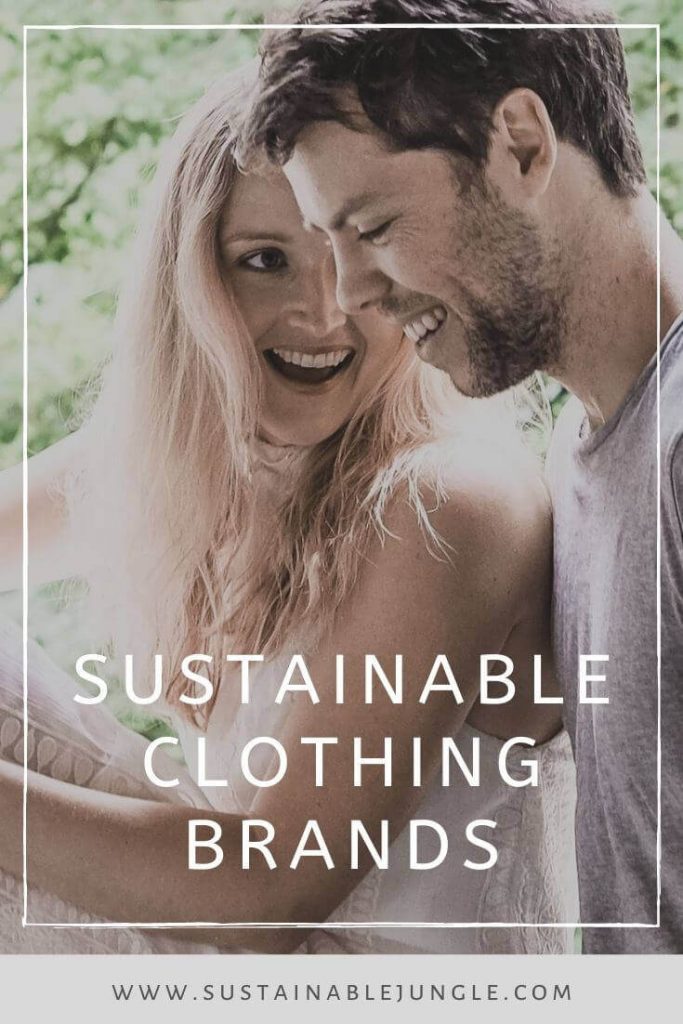

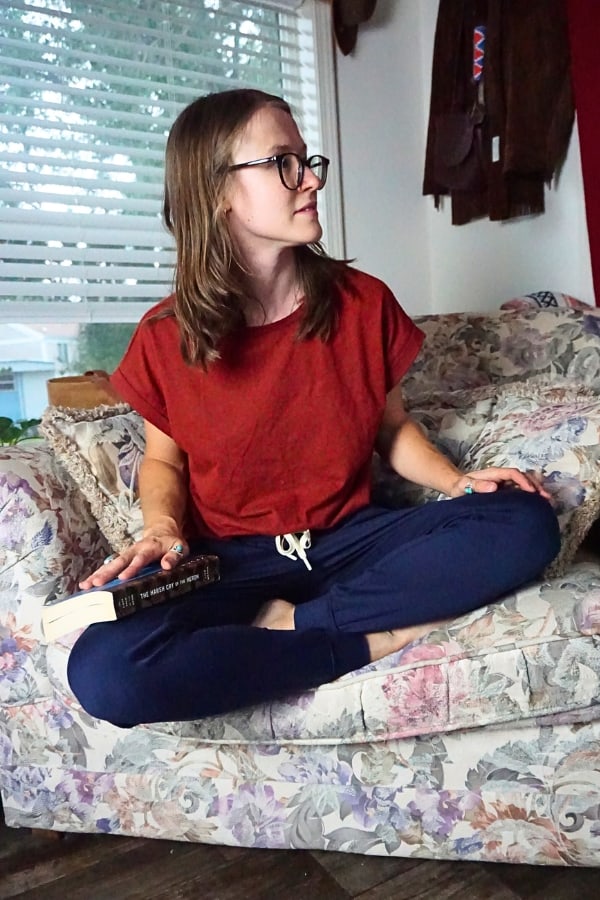
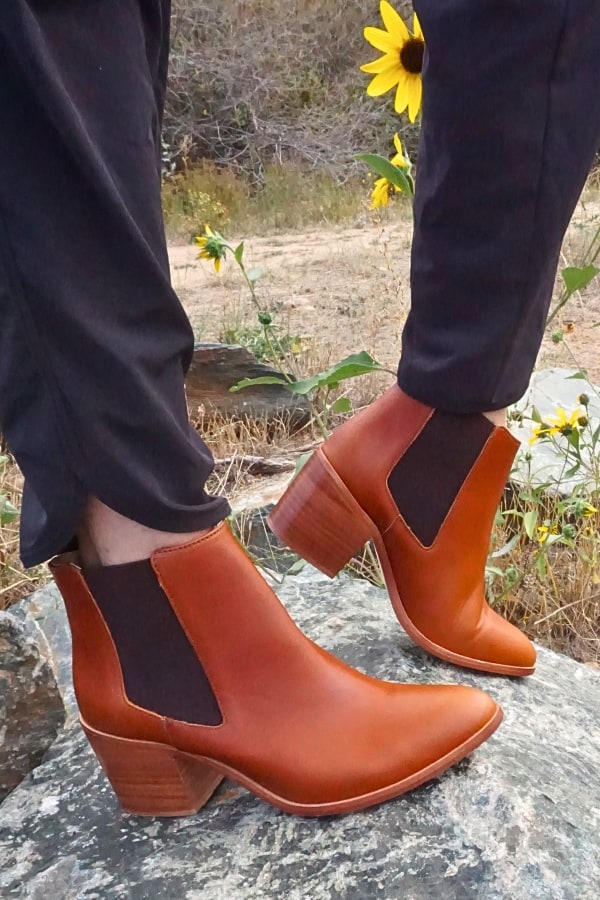

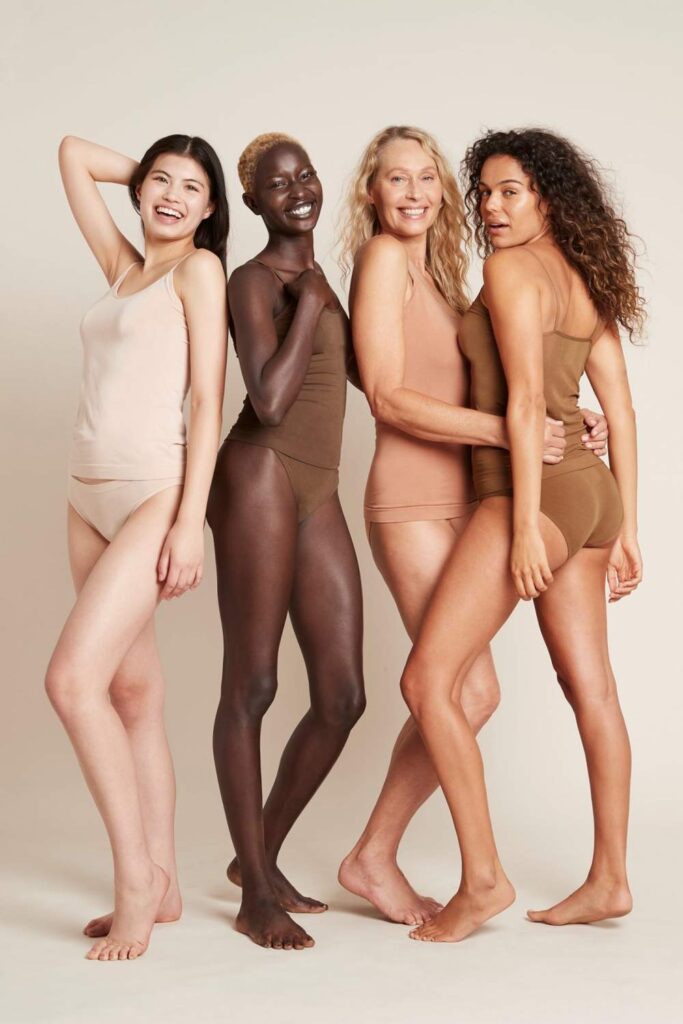
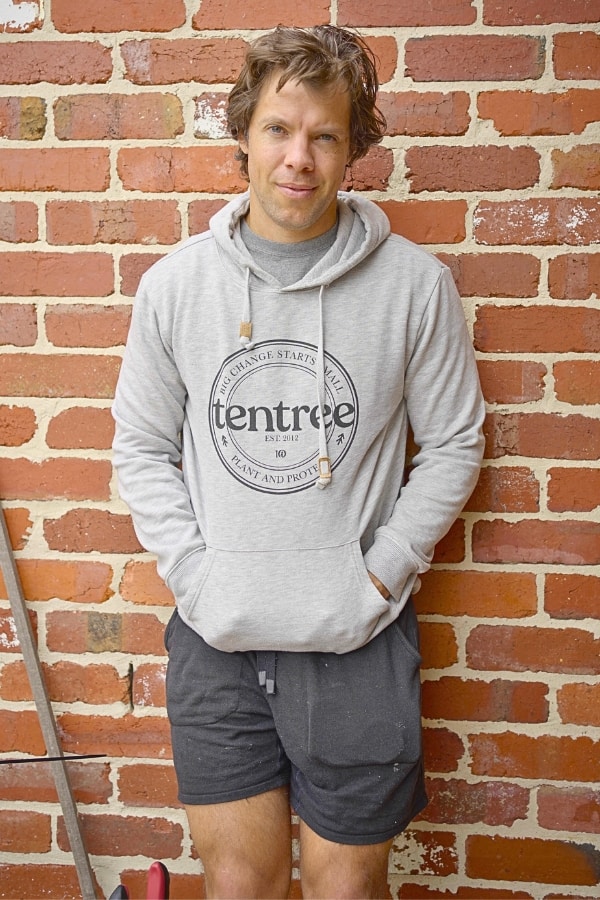
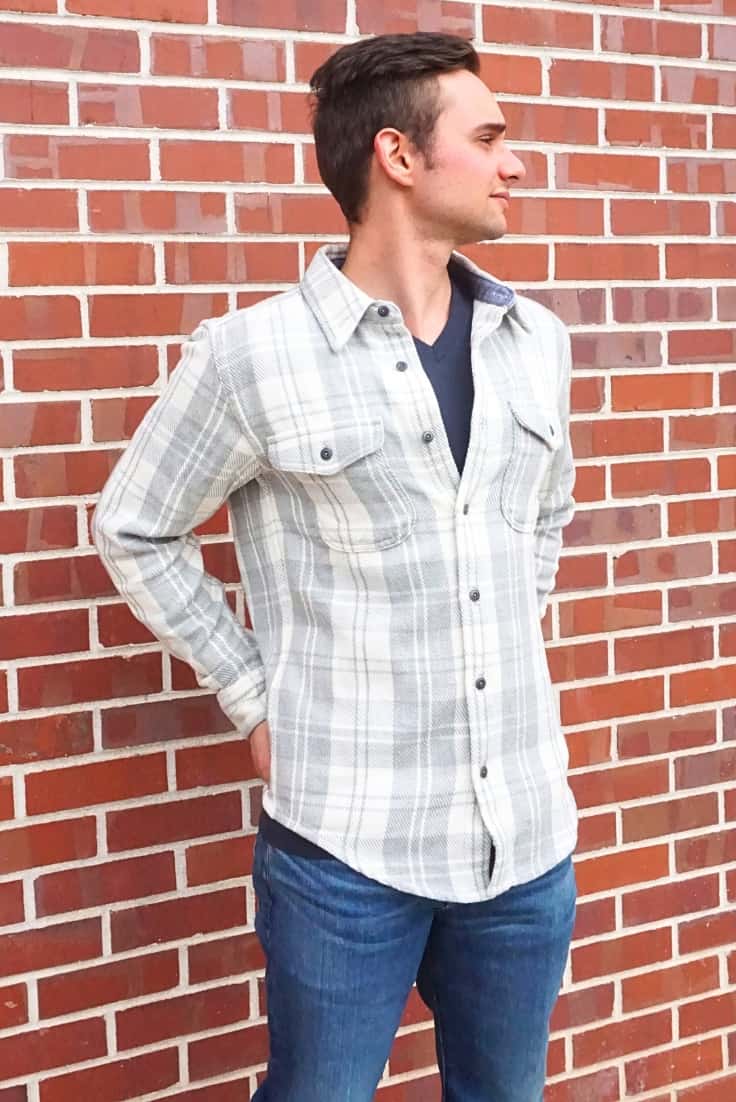
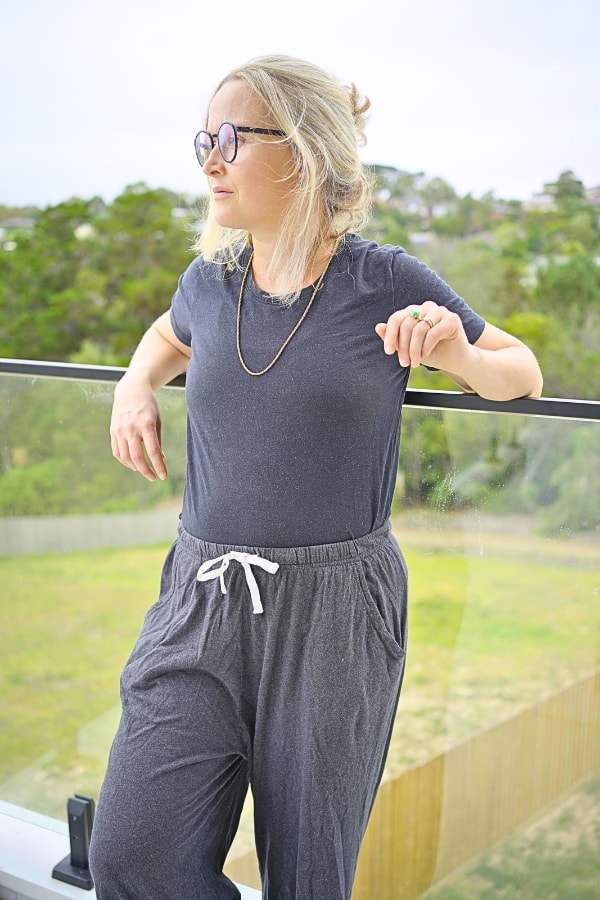
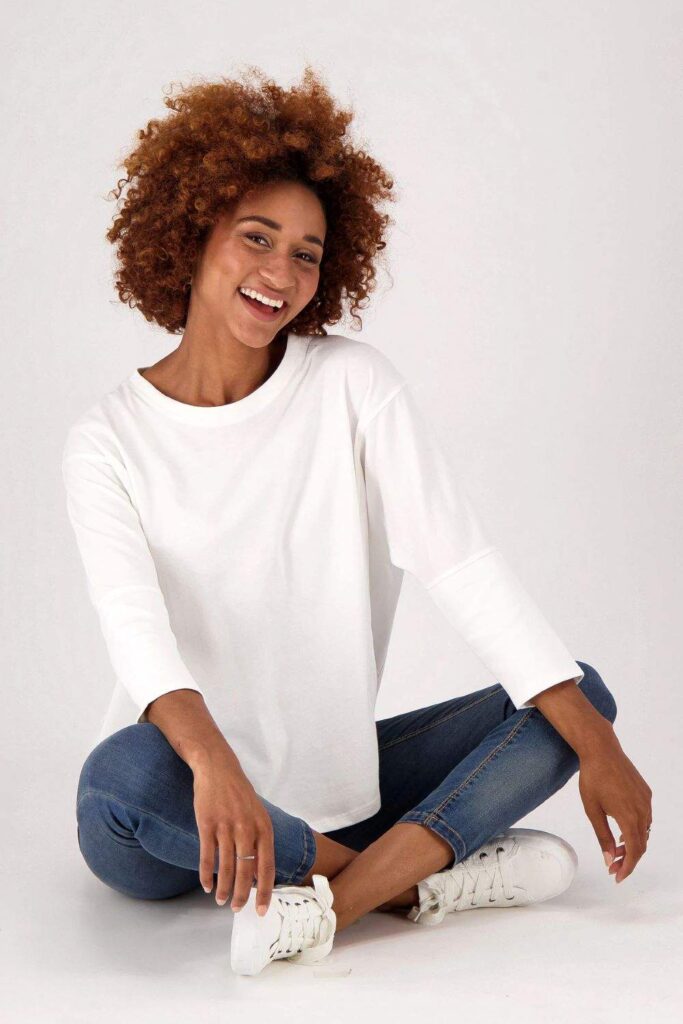
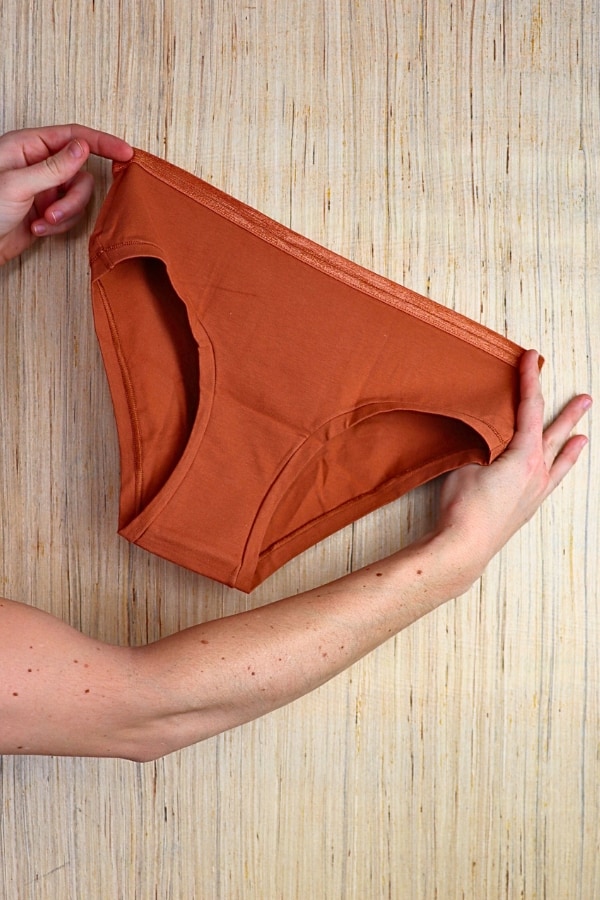

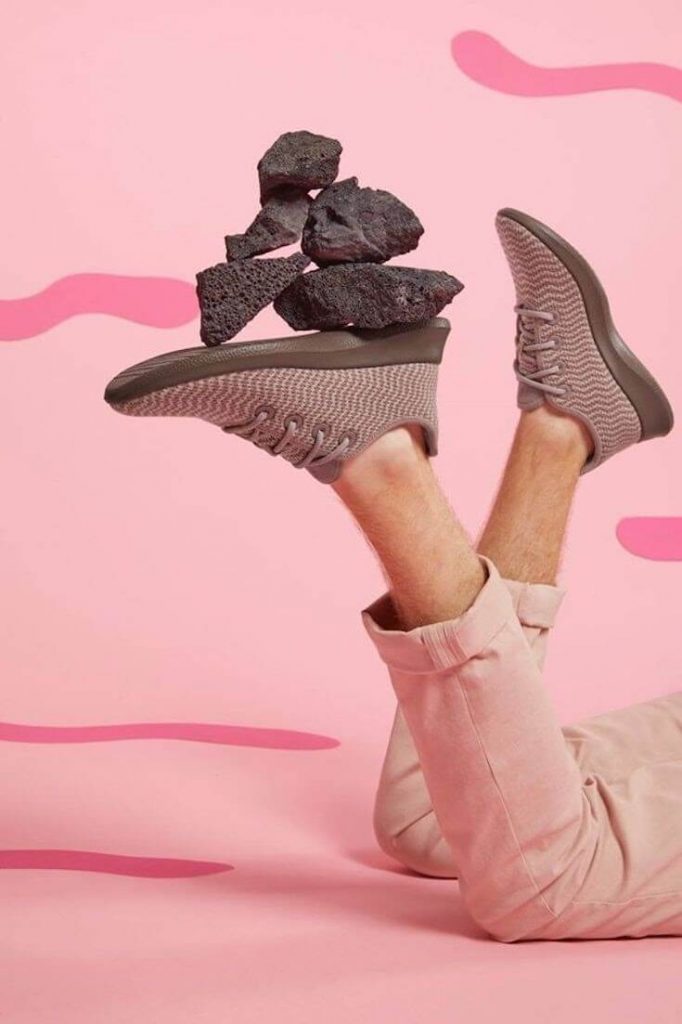
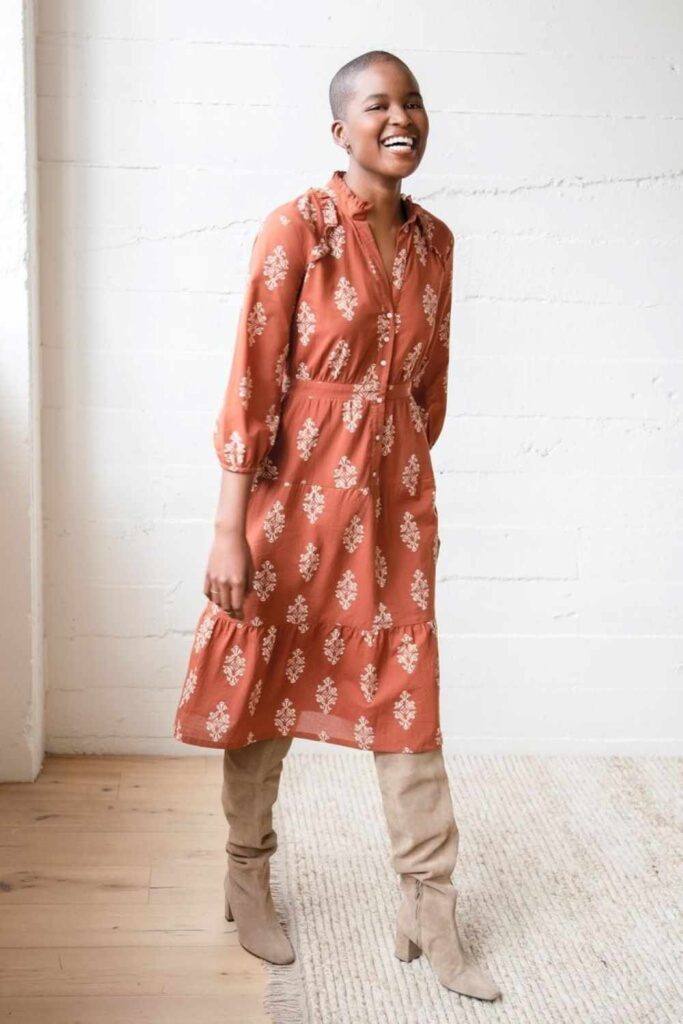


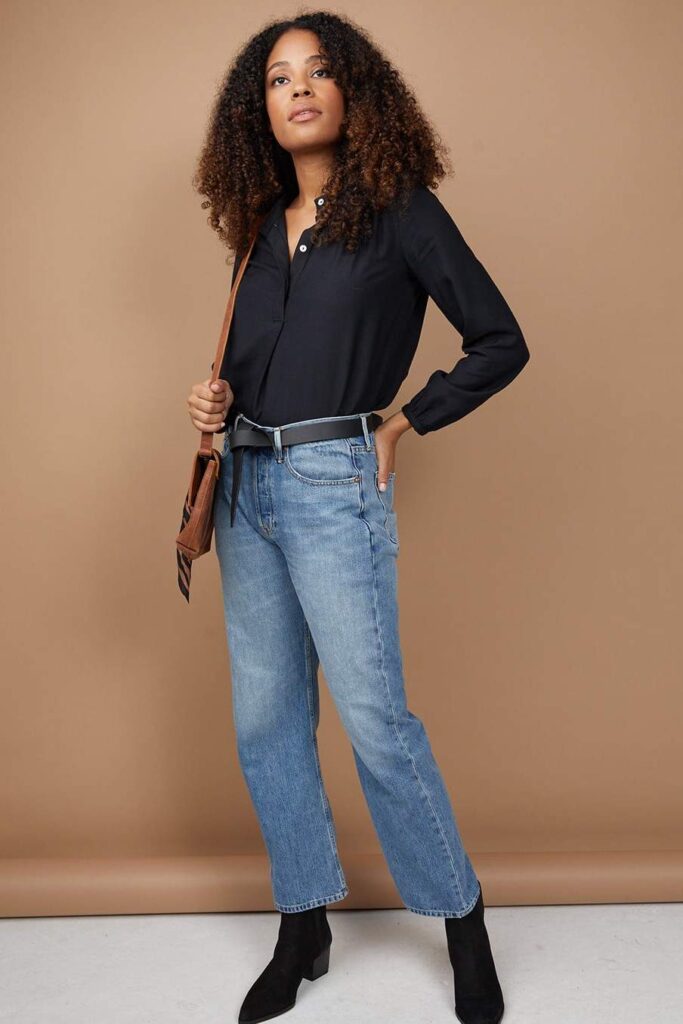
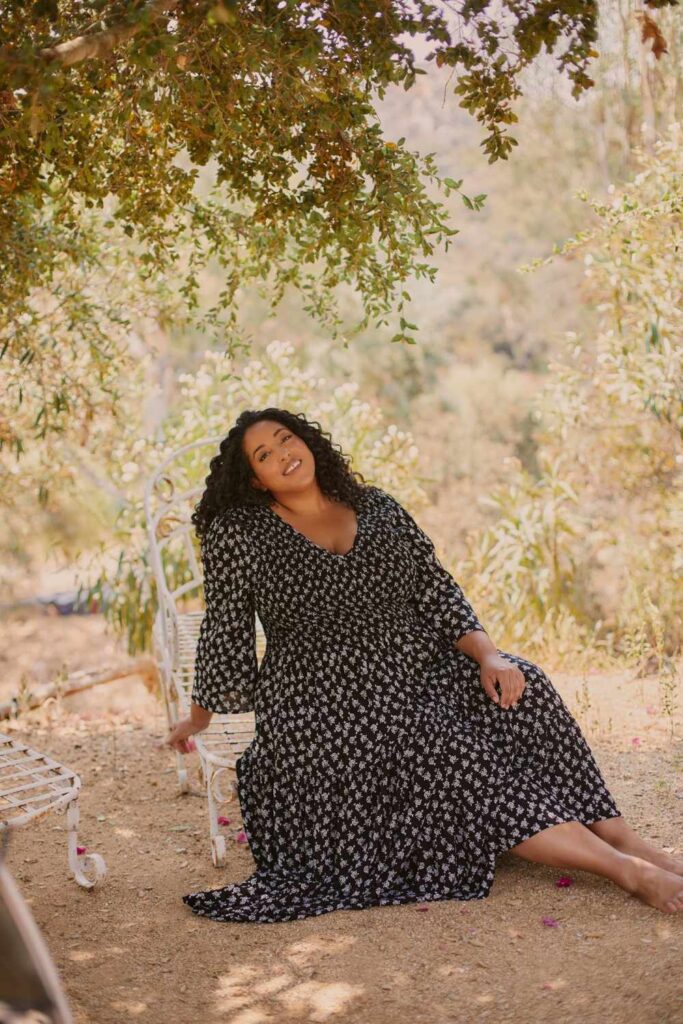
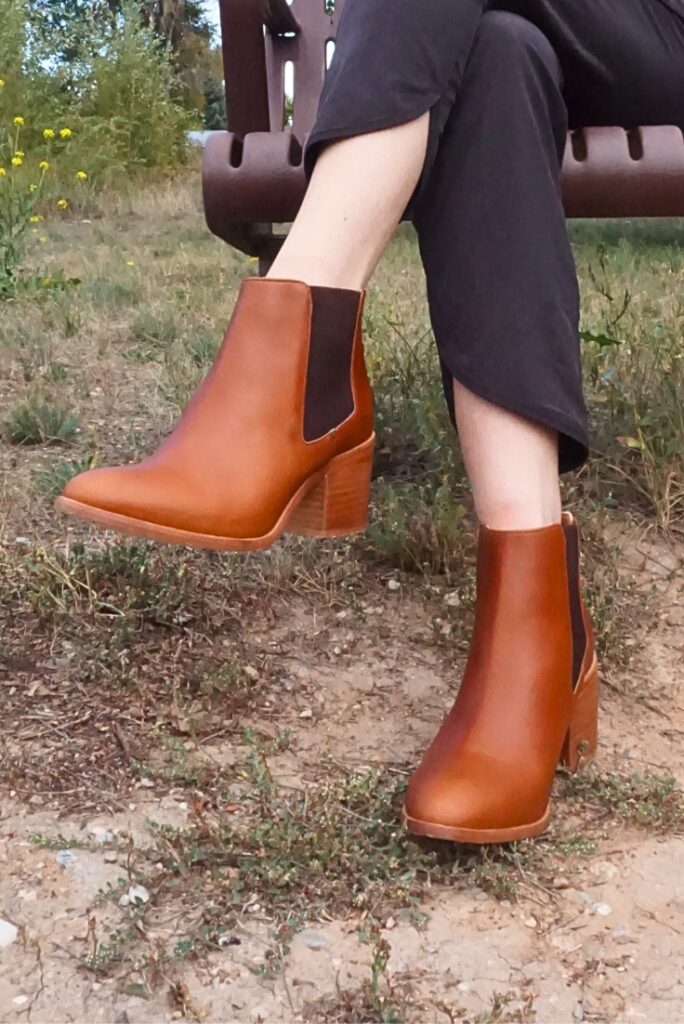
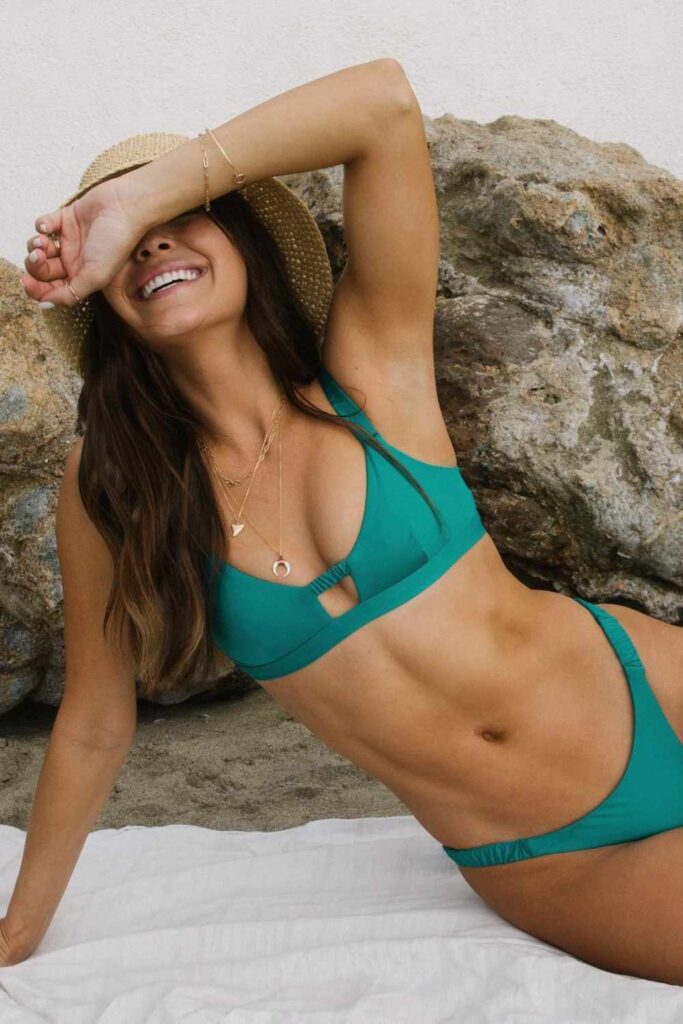
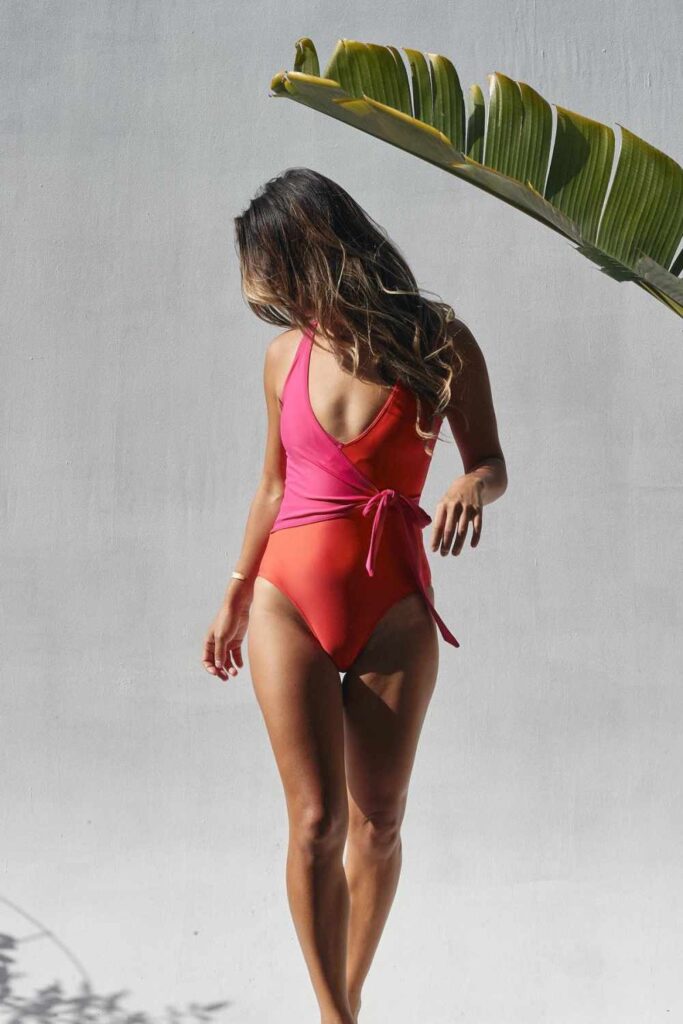
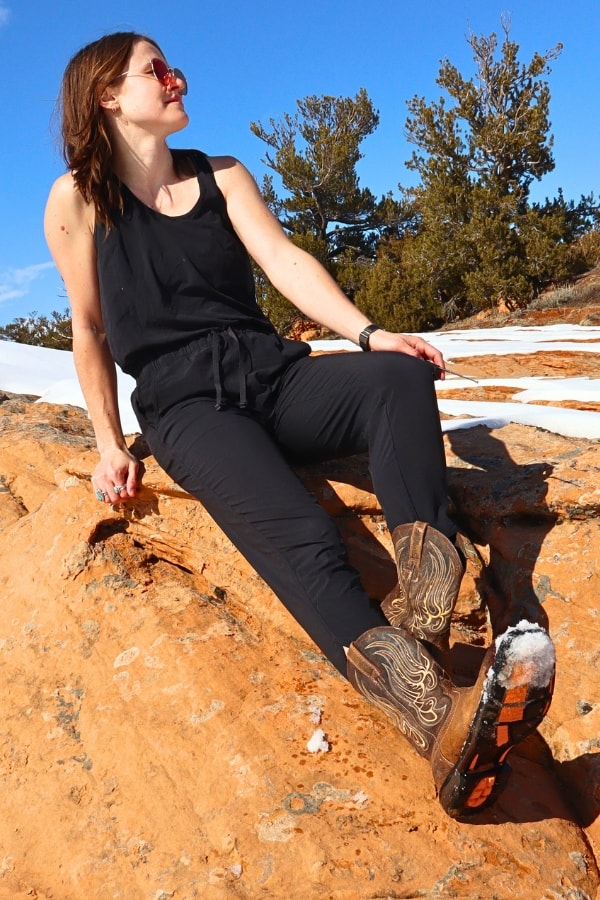
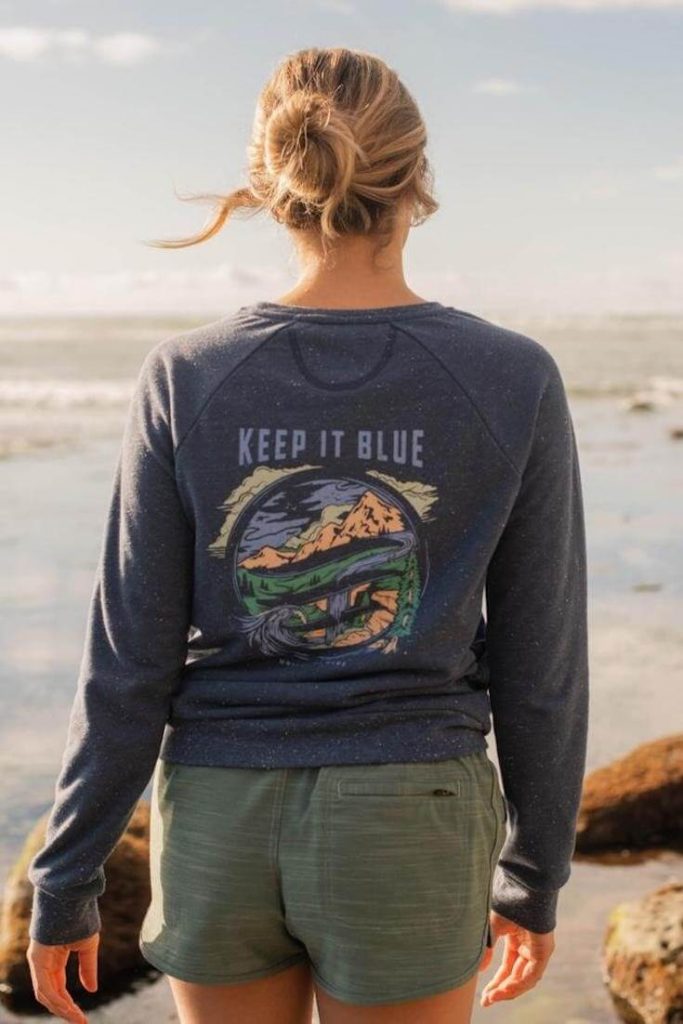
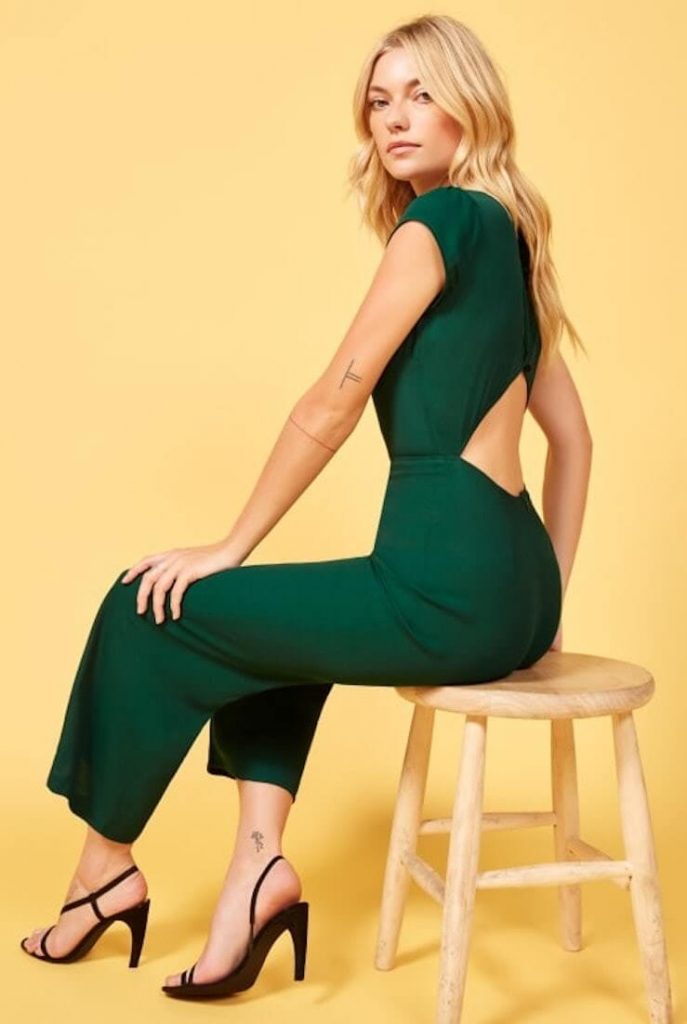
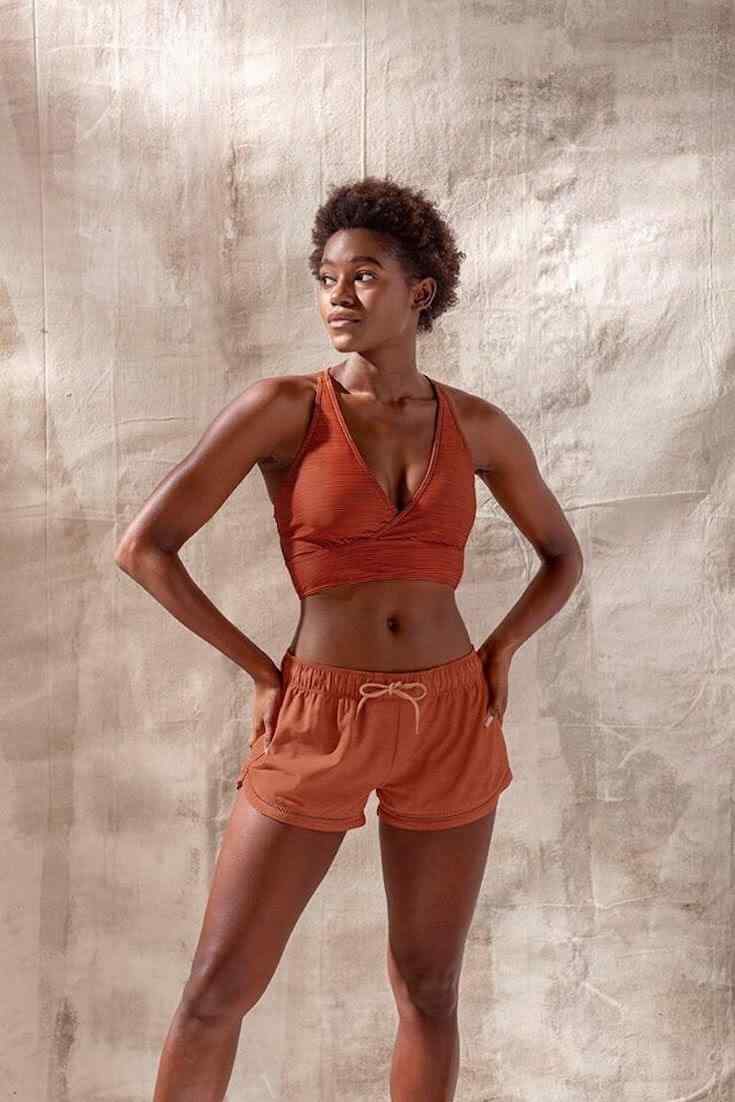
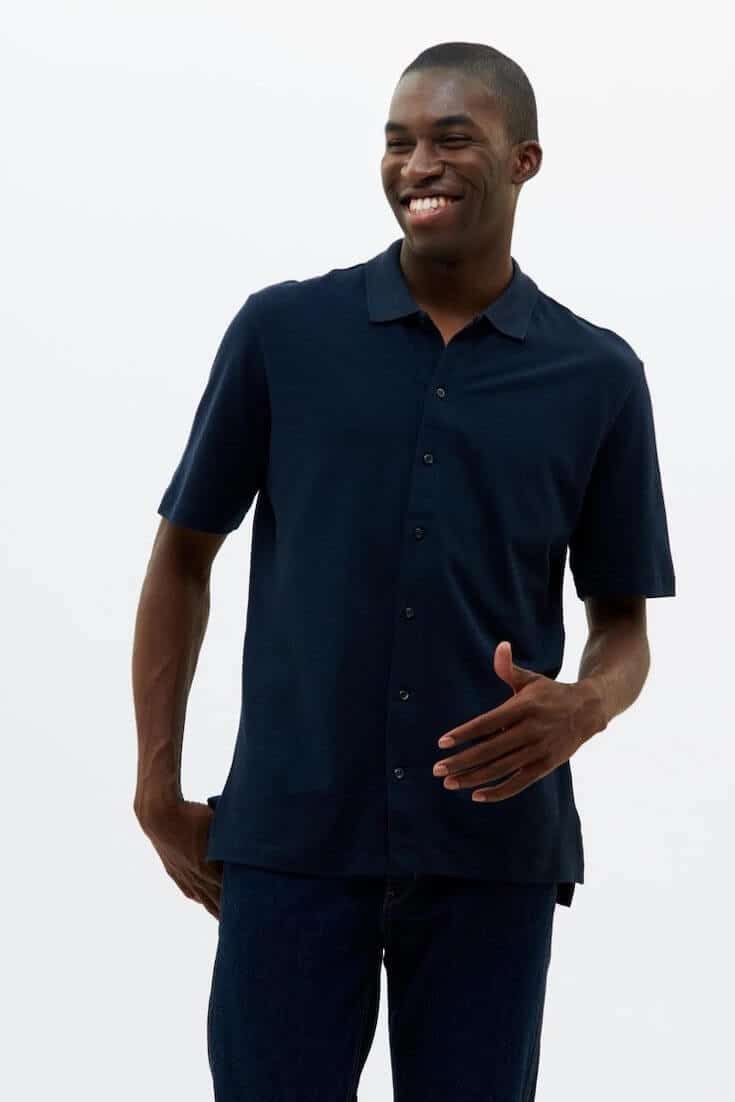
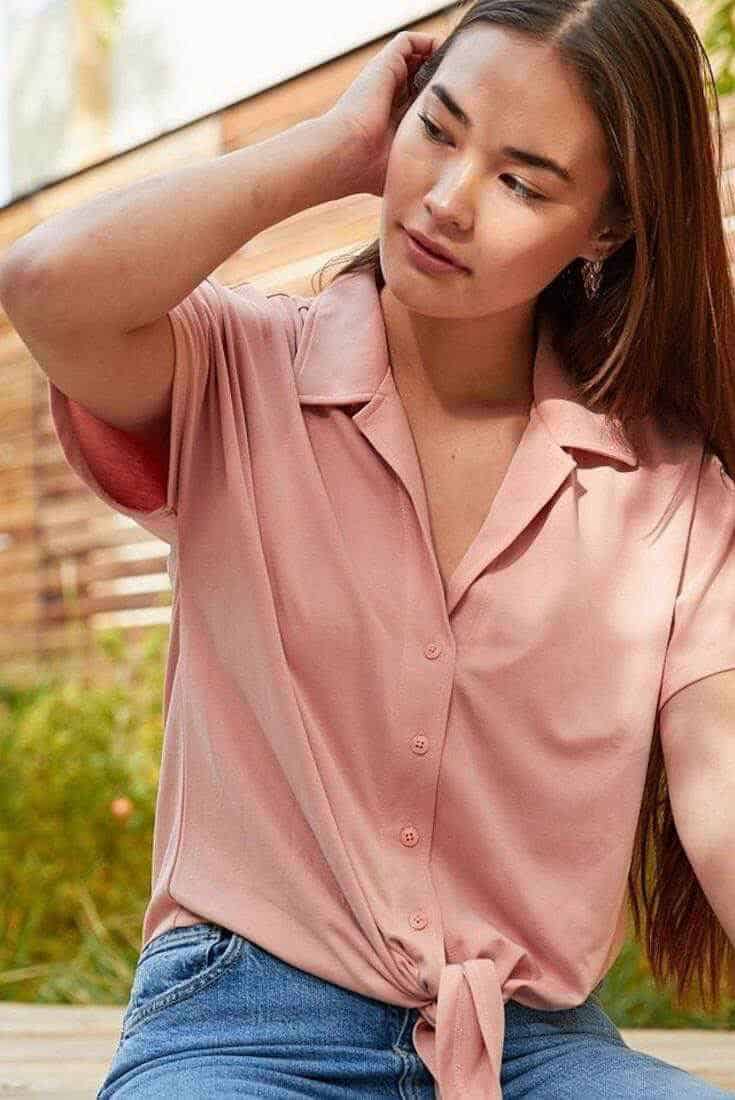
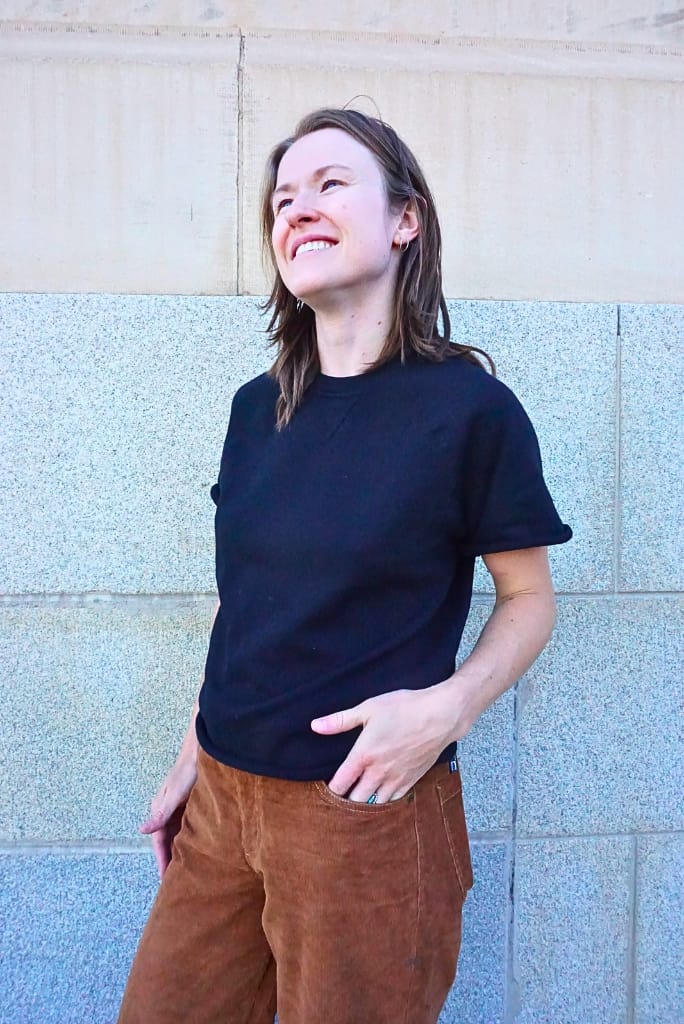


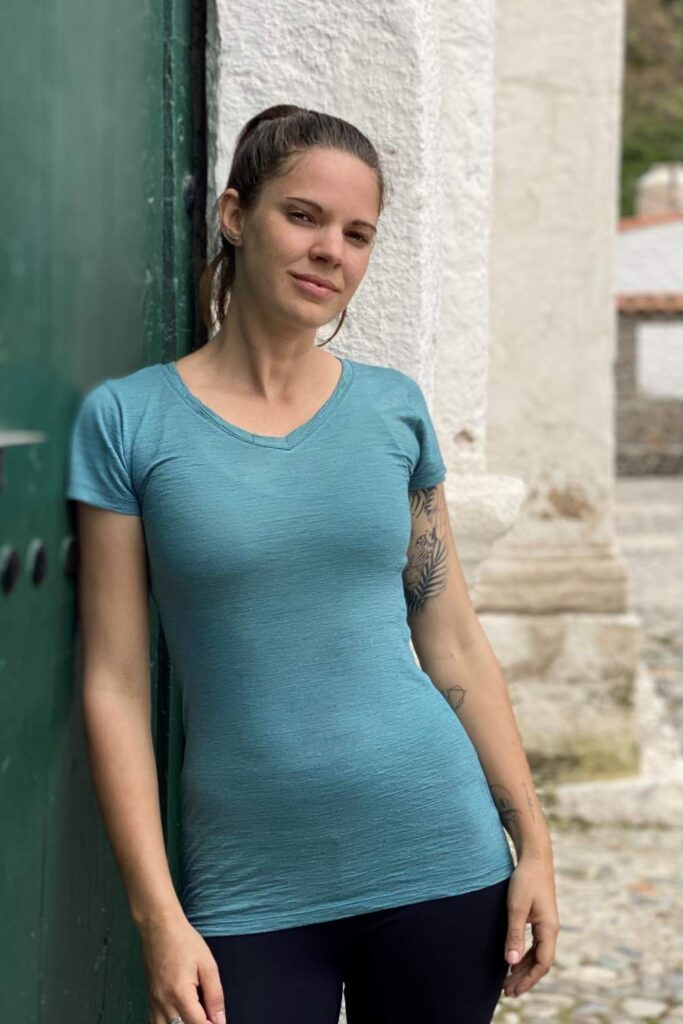

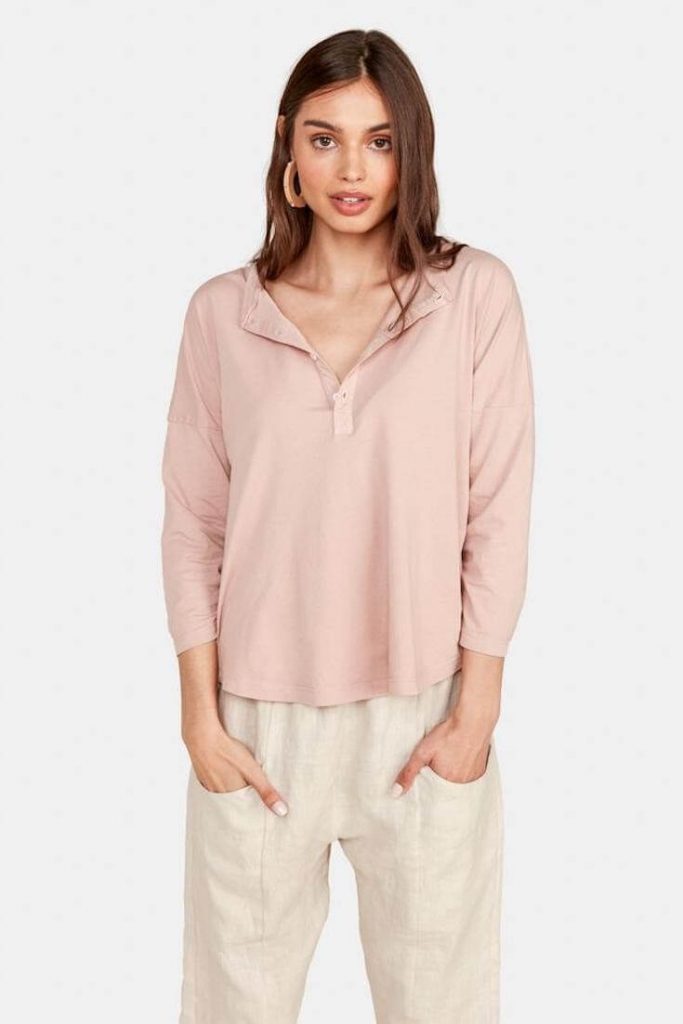
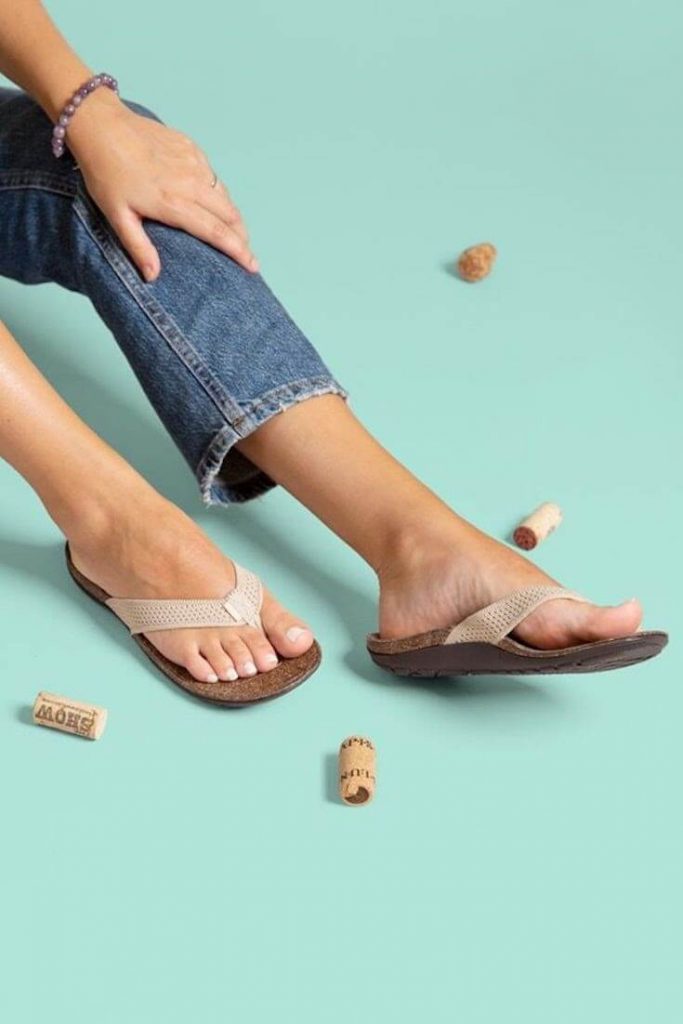
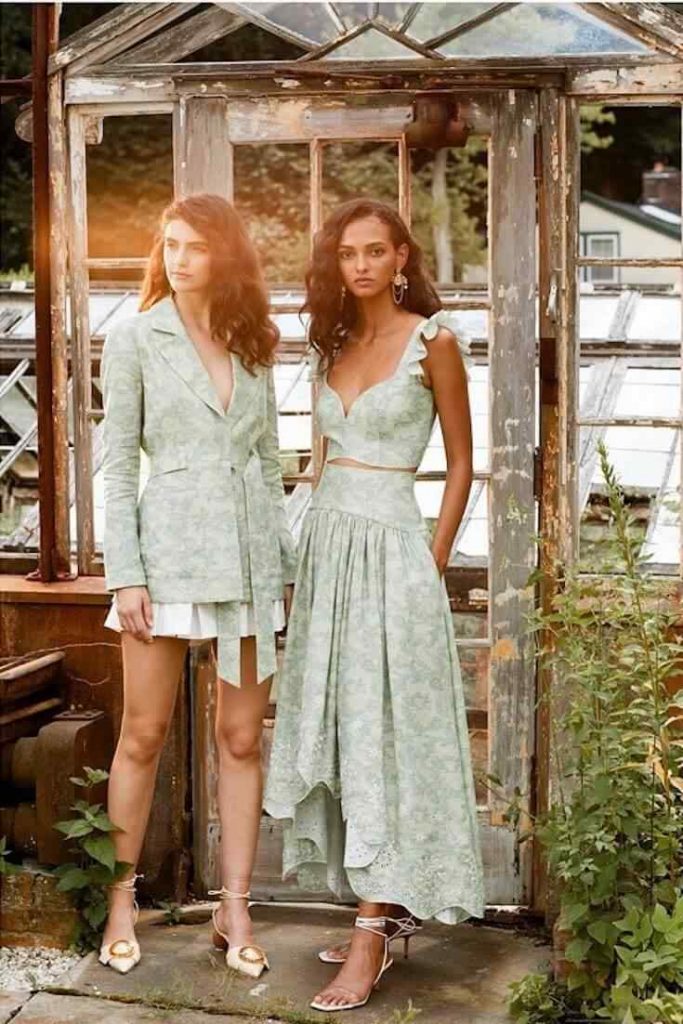

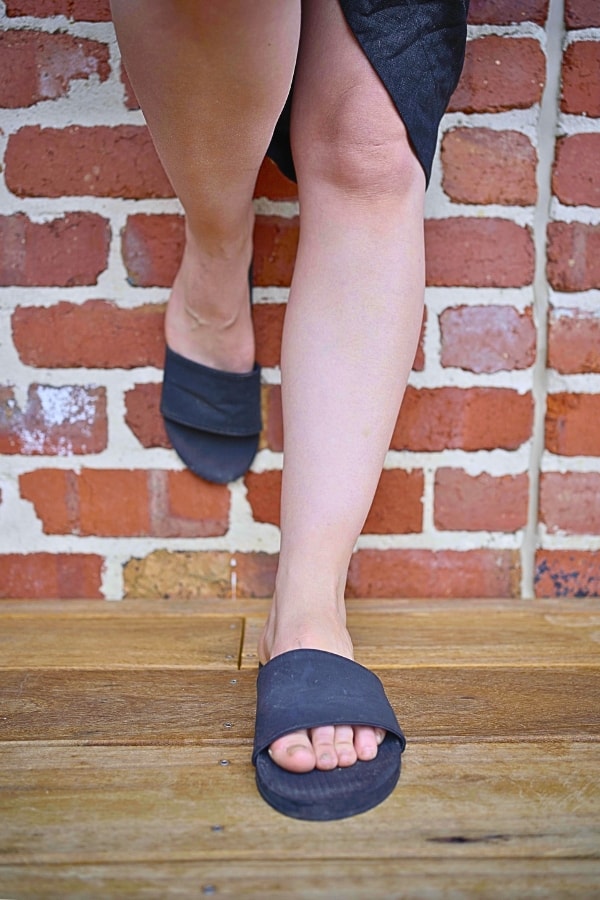
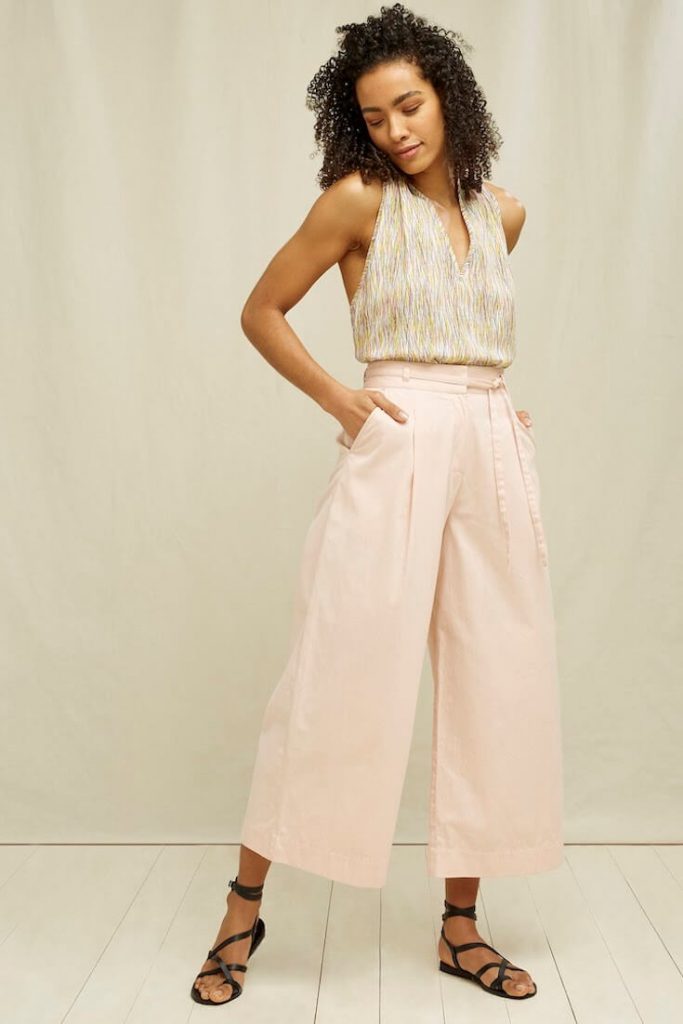

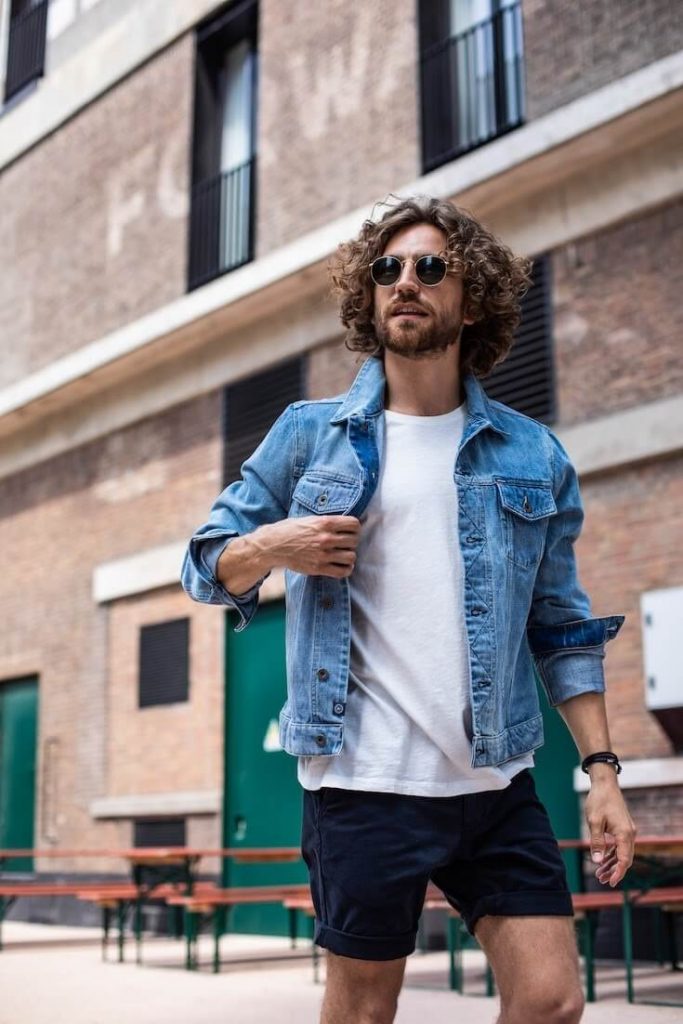
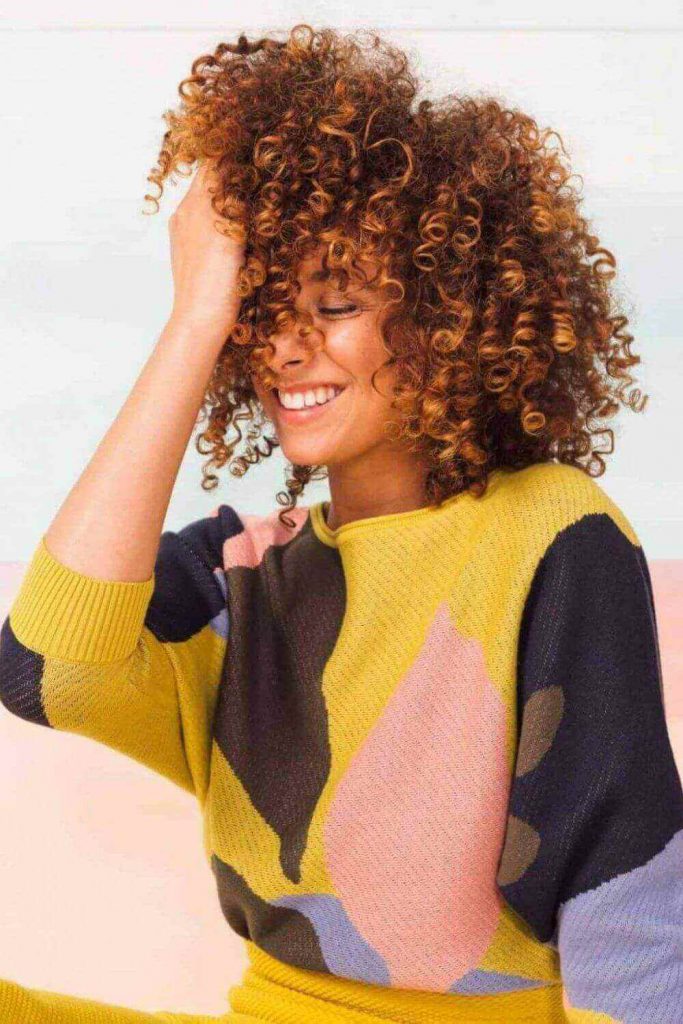

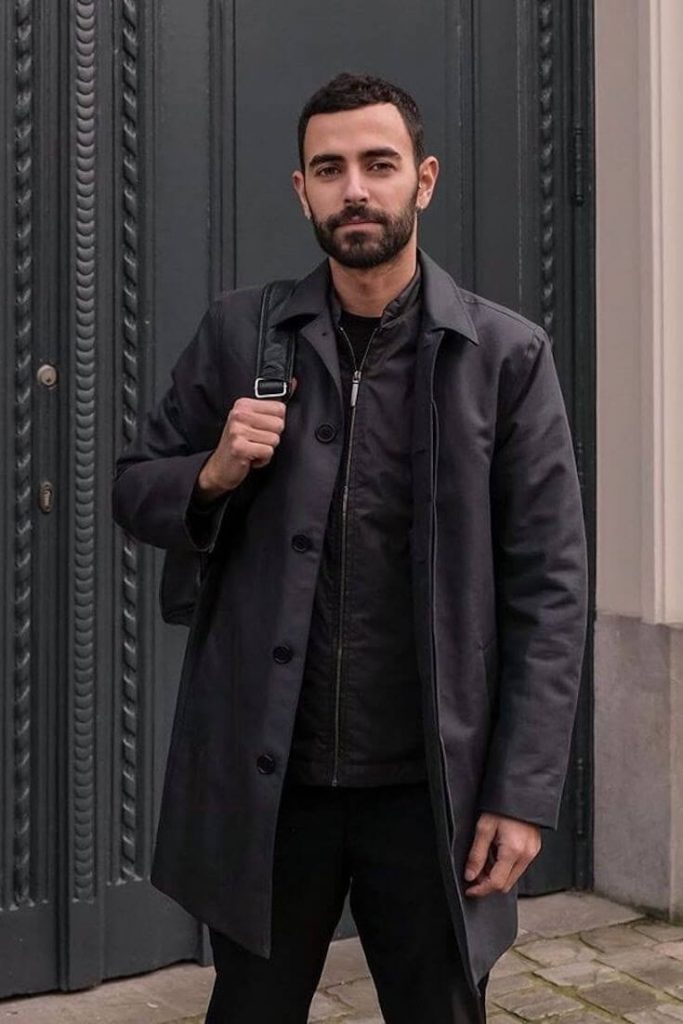
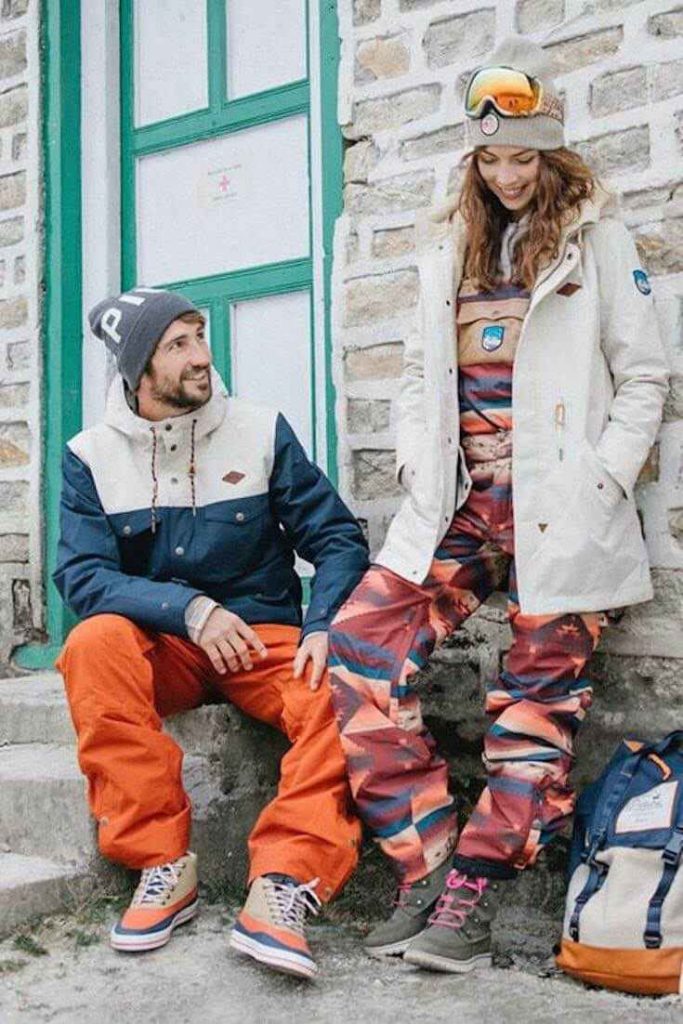
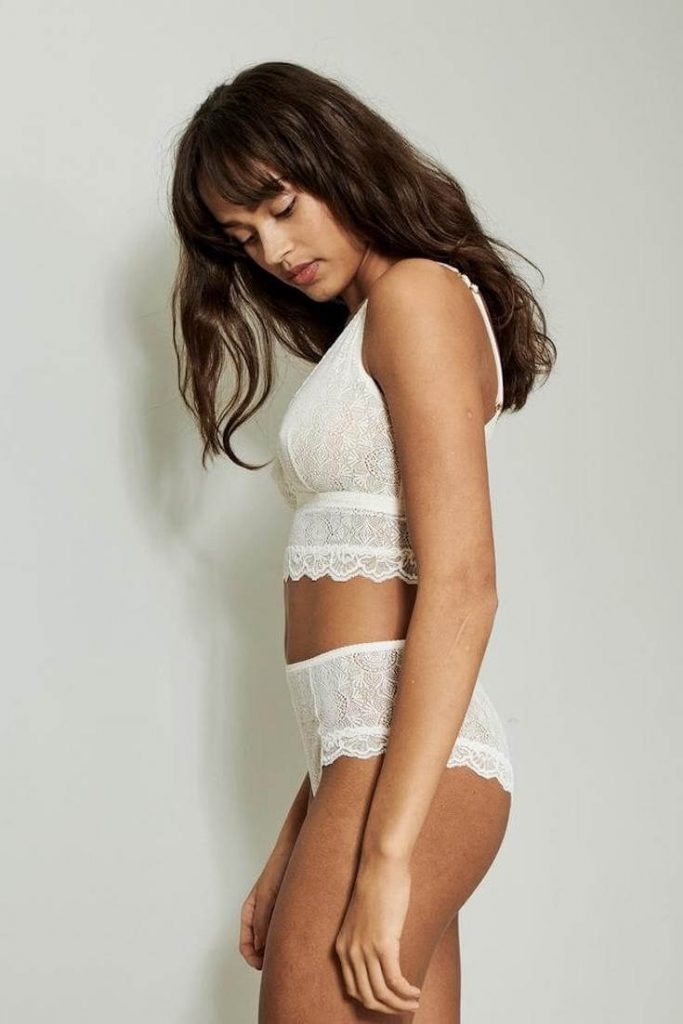
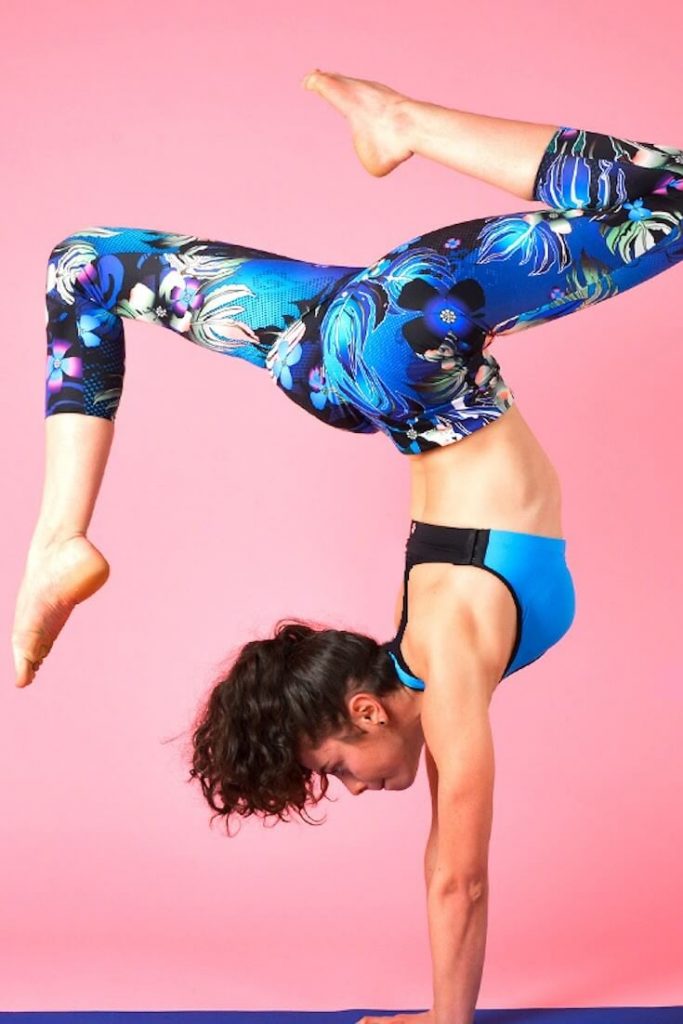
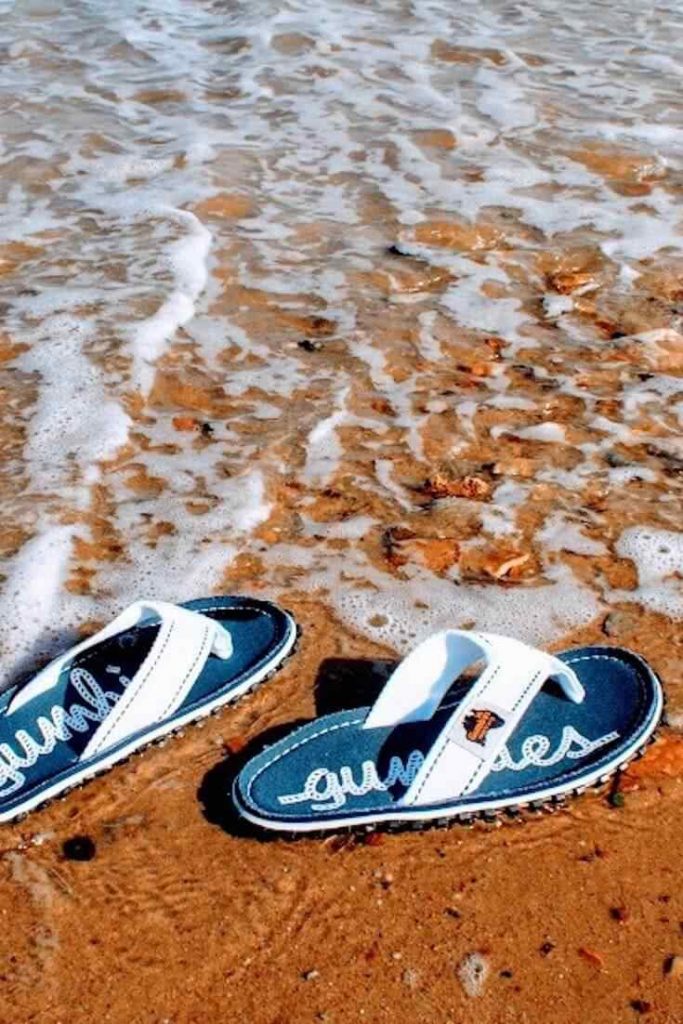
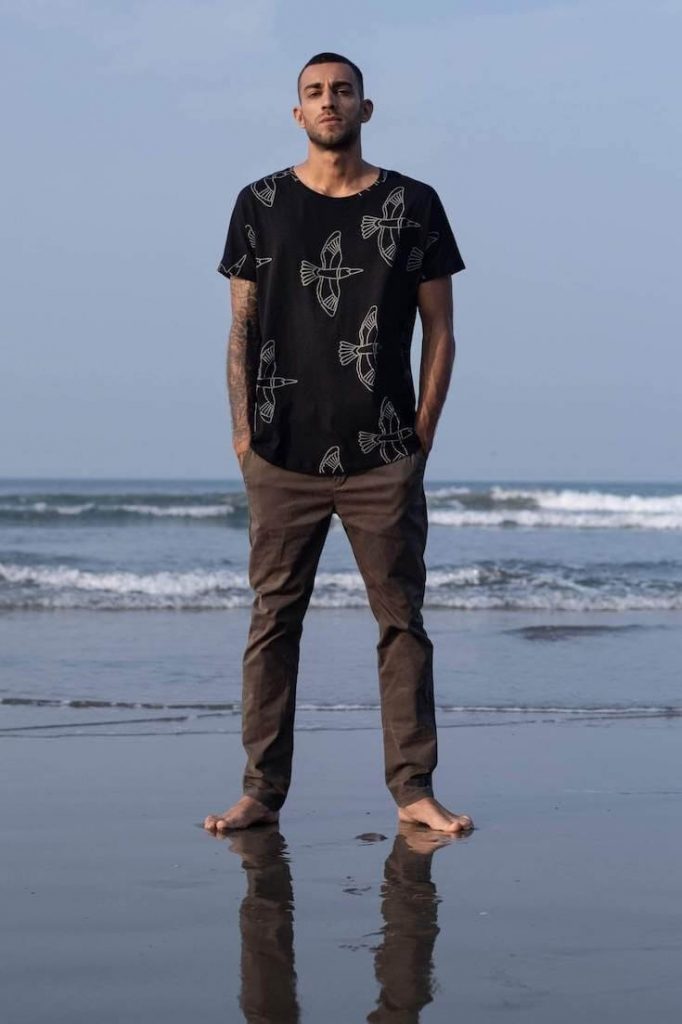
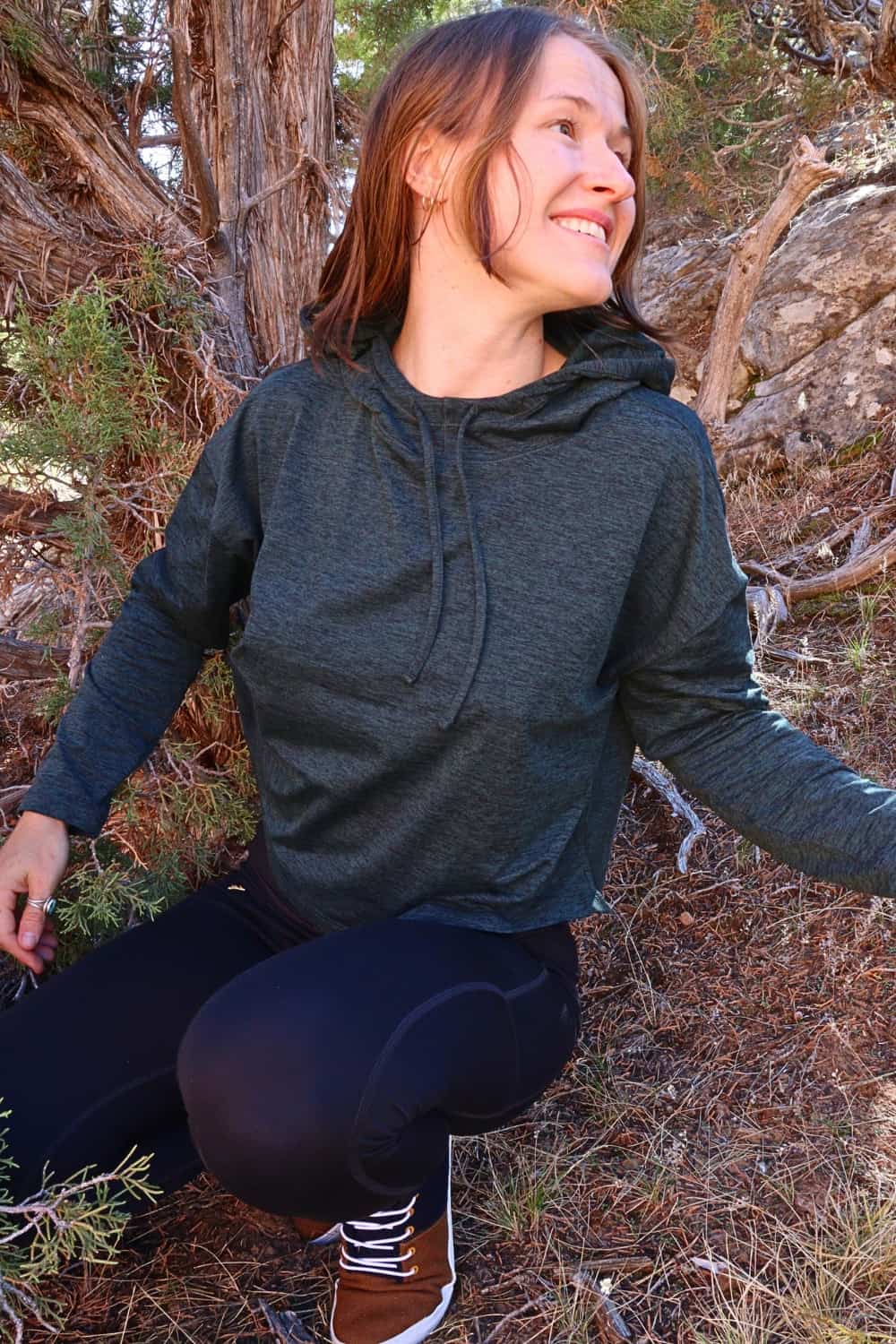
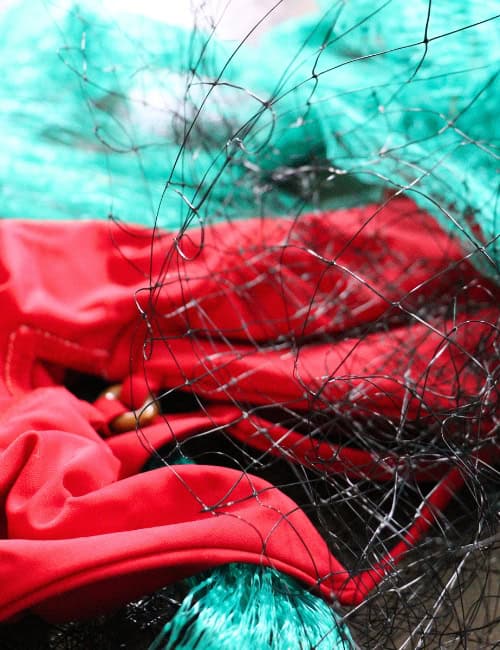


Lovely list! I used to love Elizabeth Suzann, unfortunately their business did not make it due to COVID. My new favs are SKYE (shop-skye.com) and CO (co-collections.com). Their pieces are timeless and effortlessly elegant.